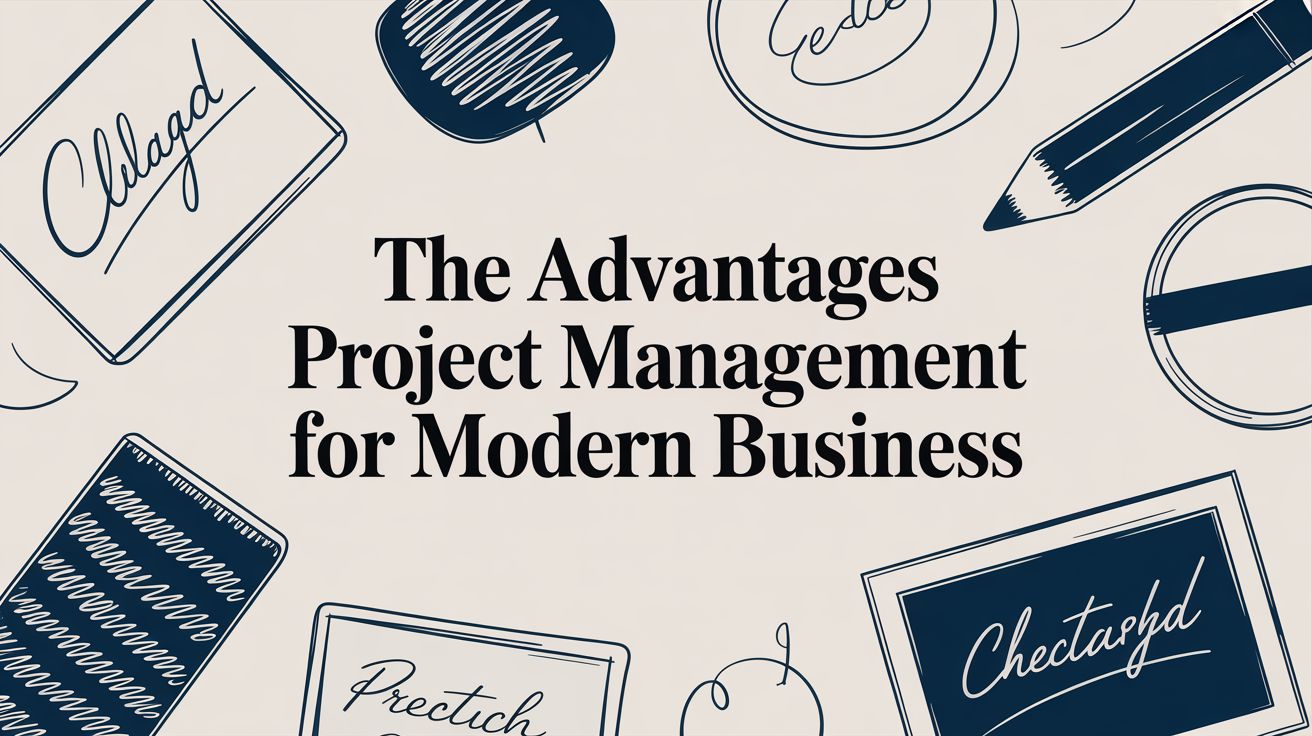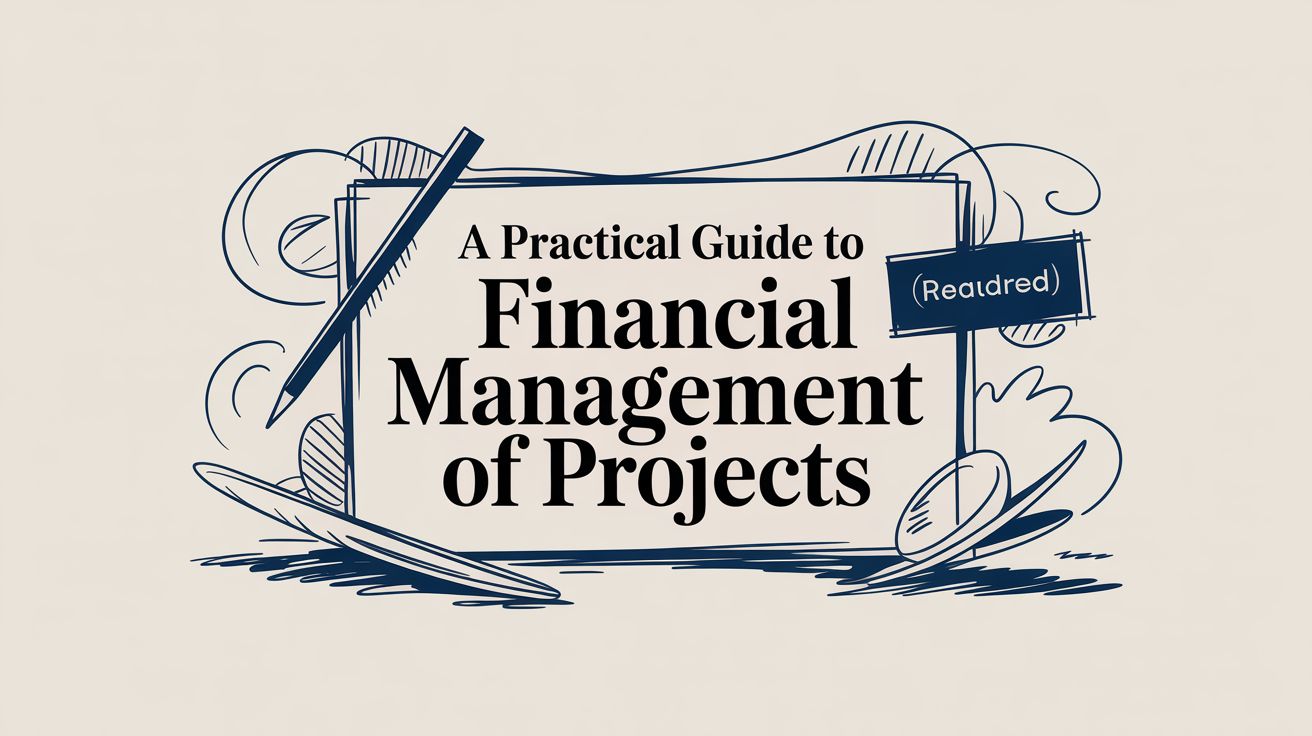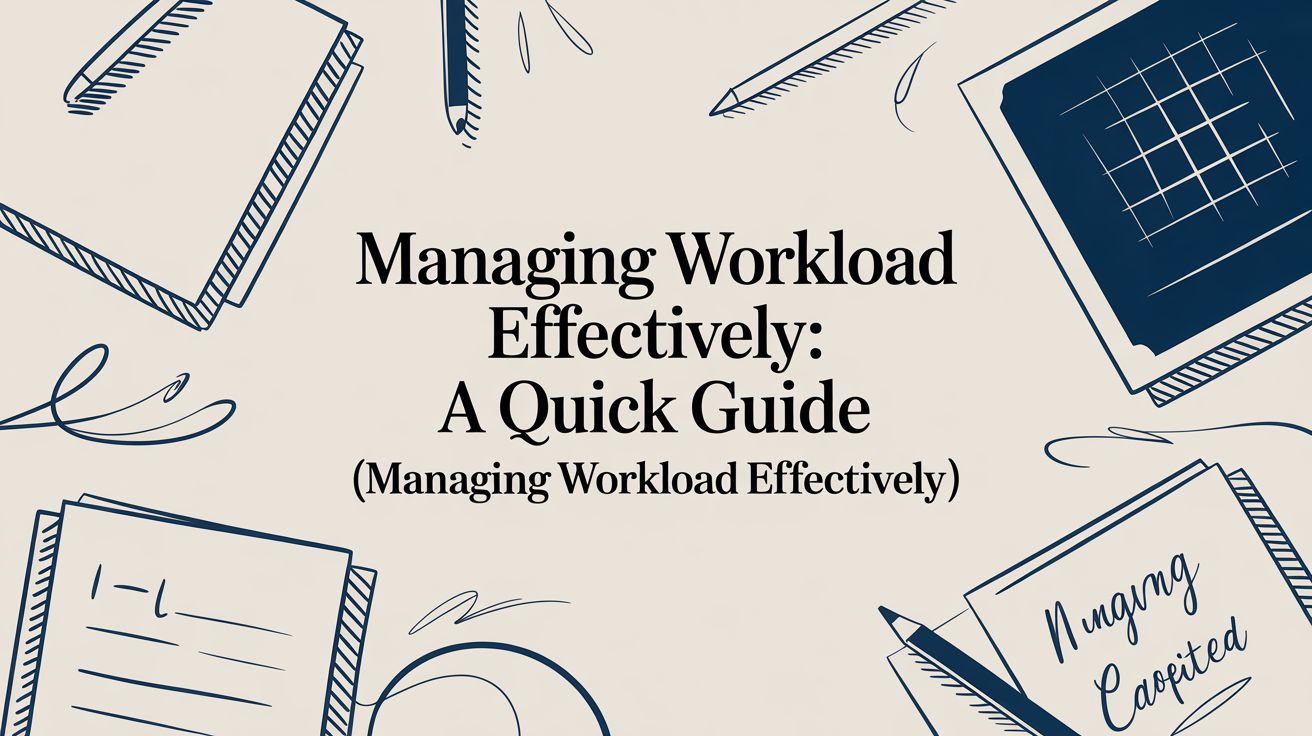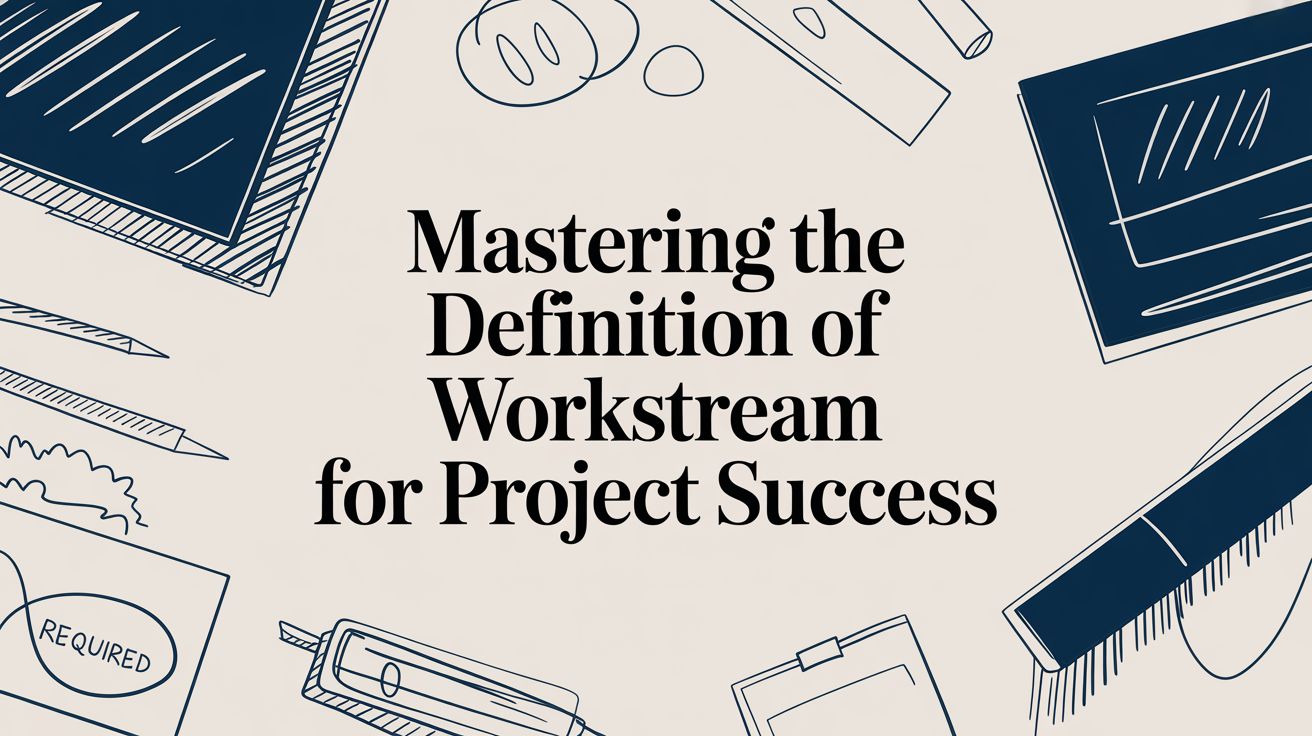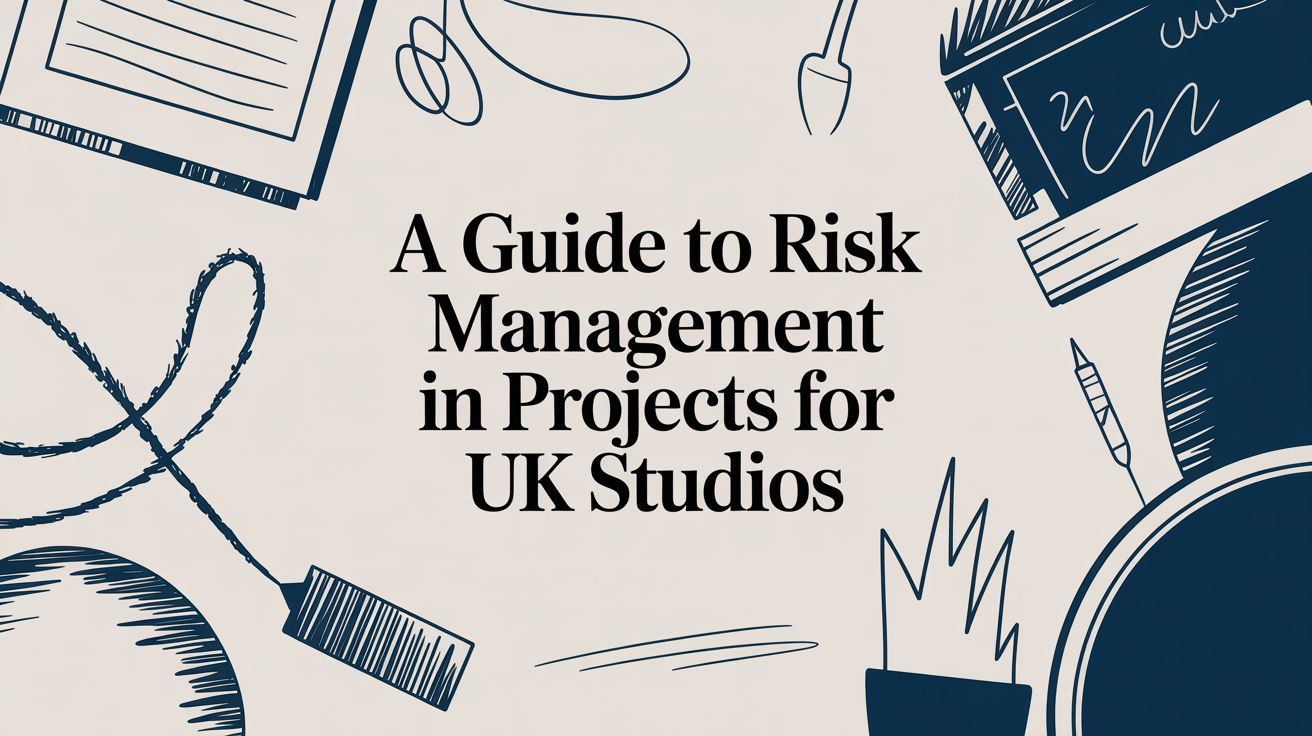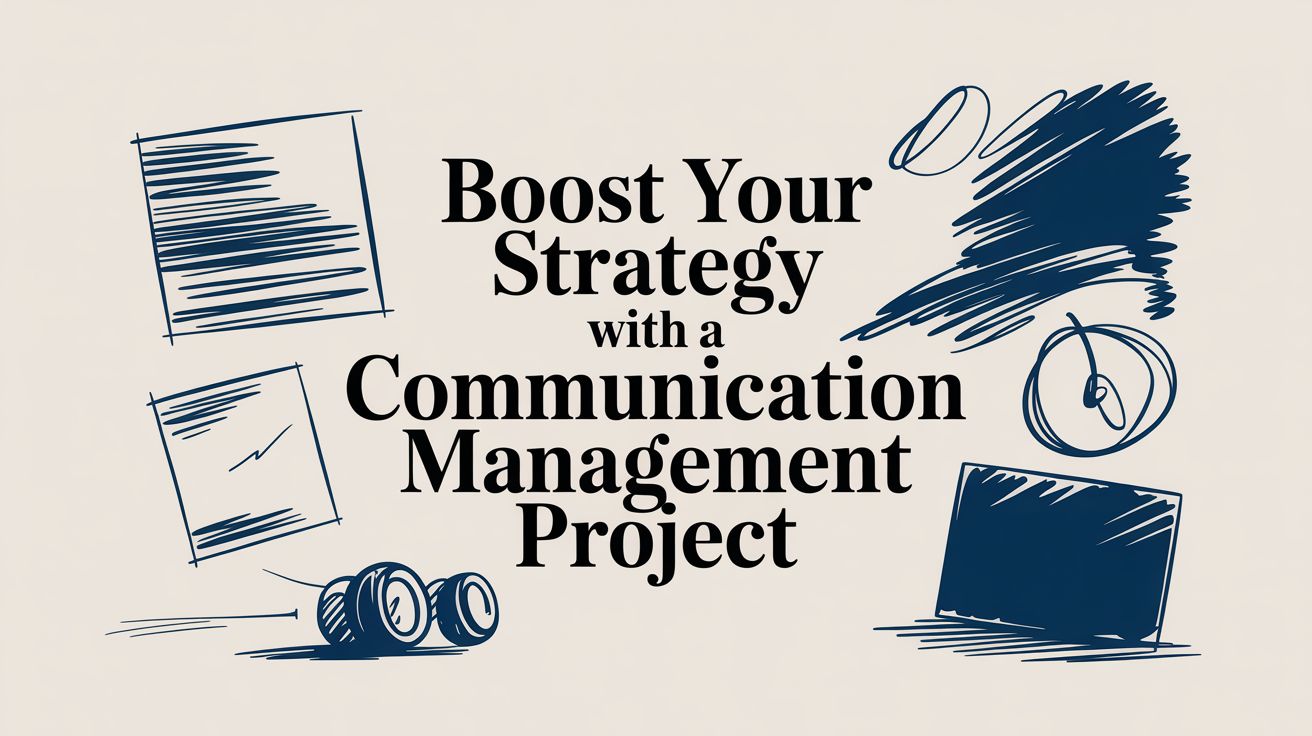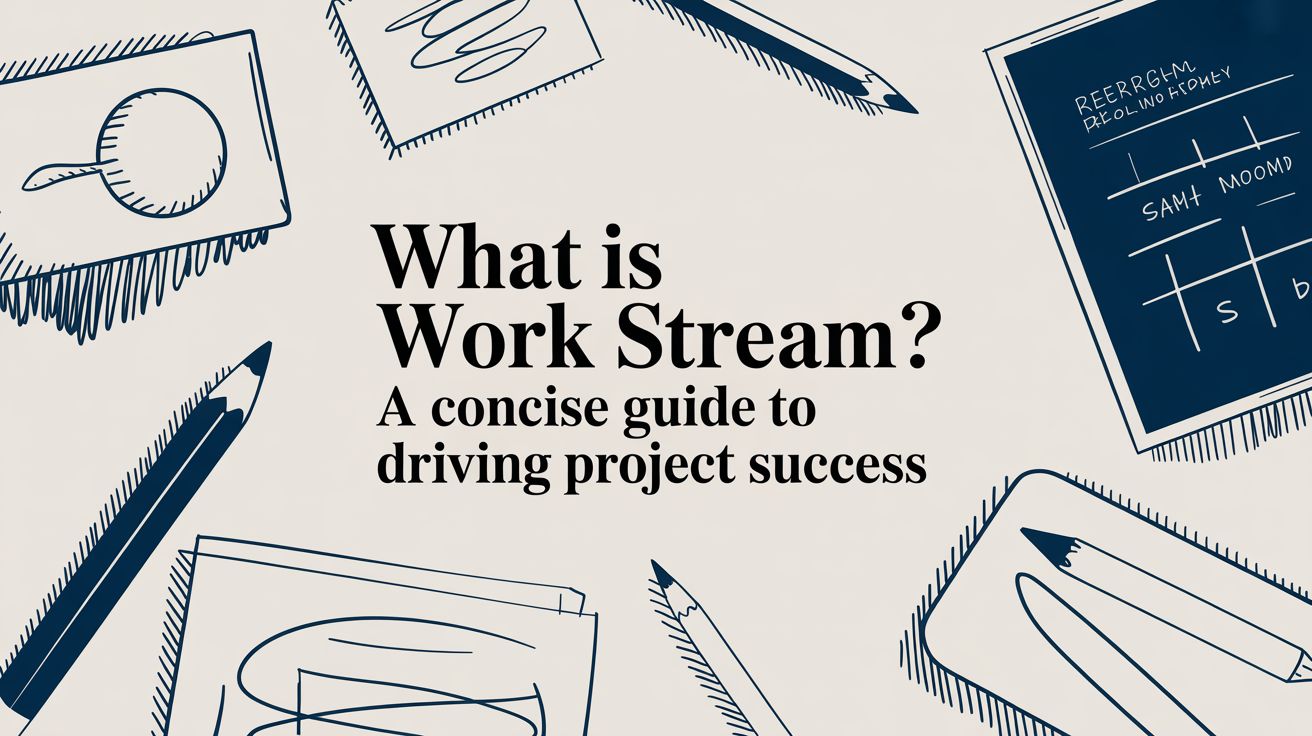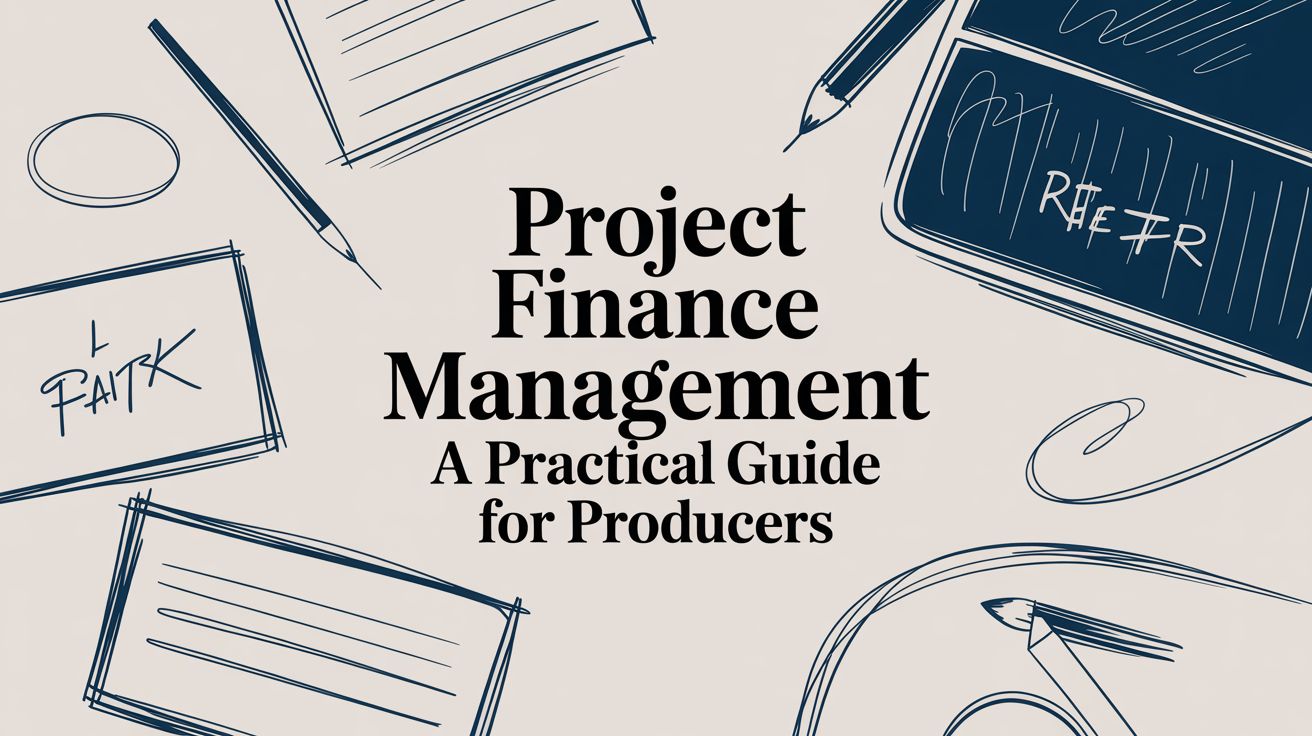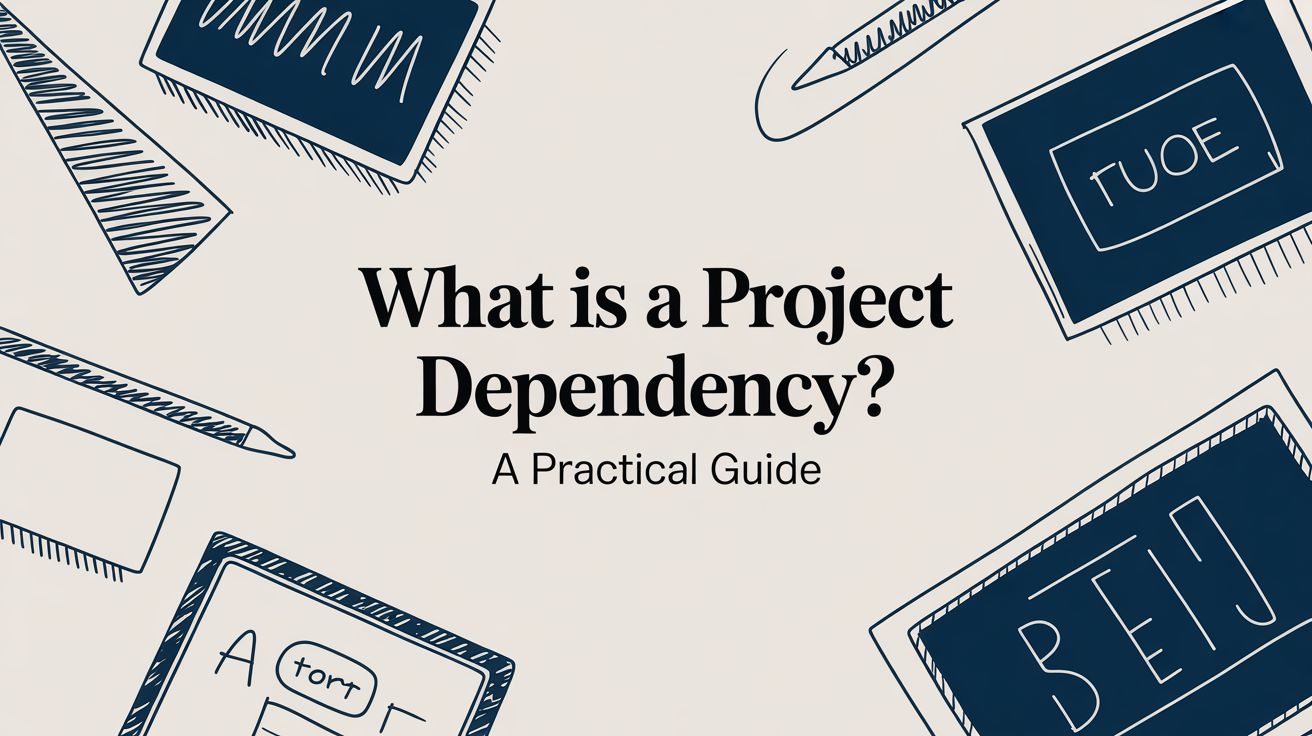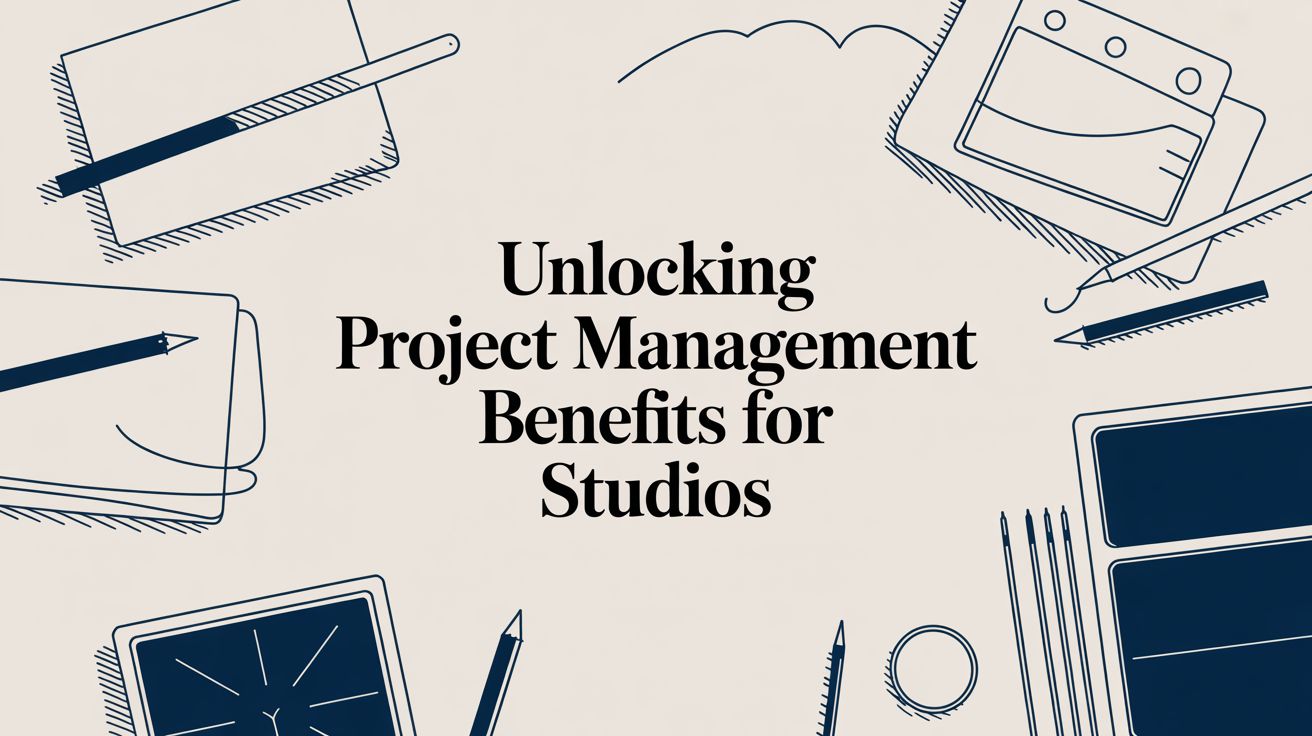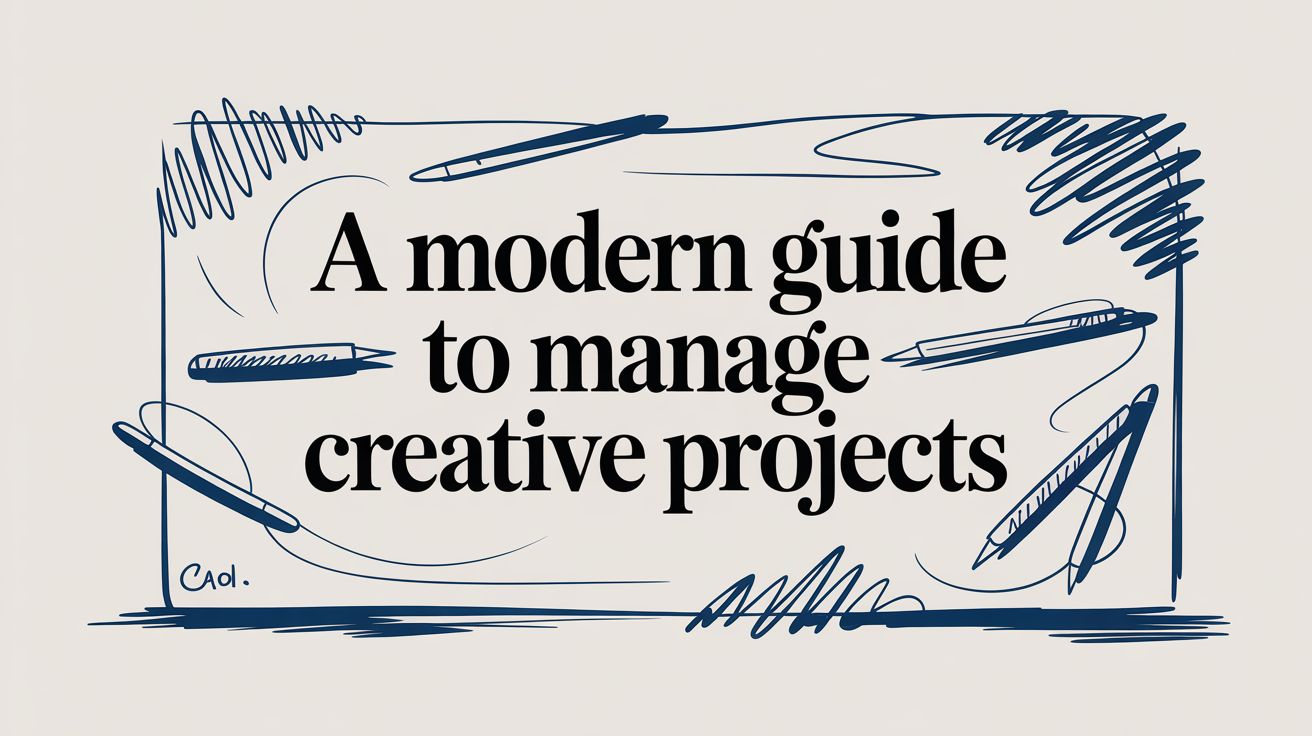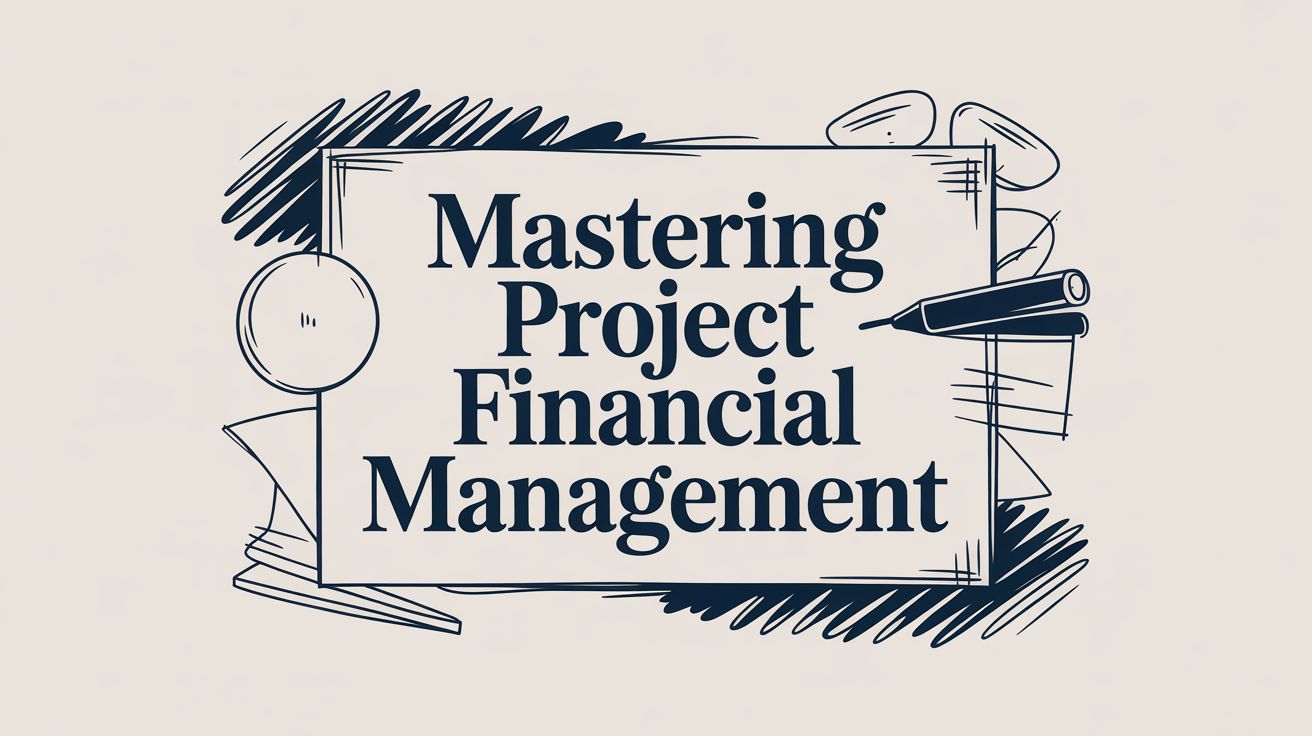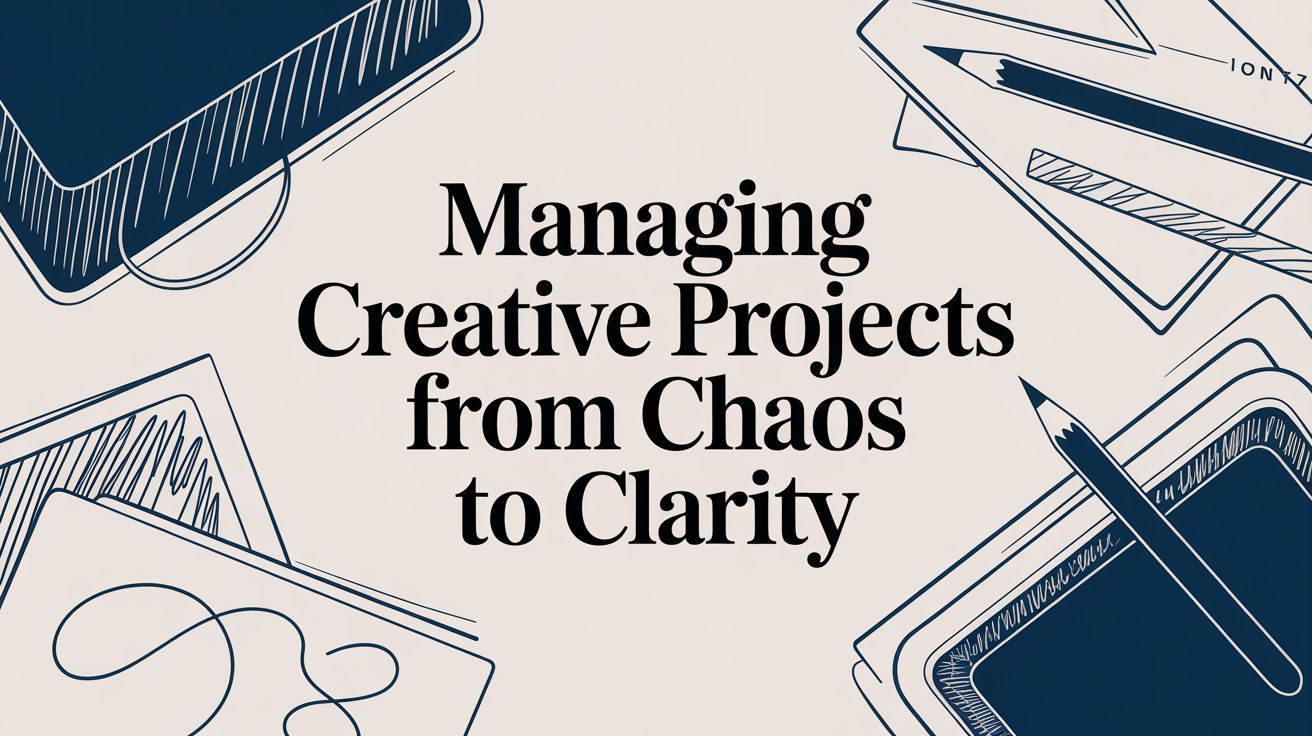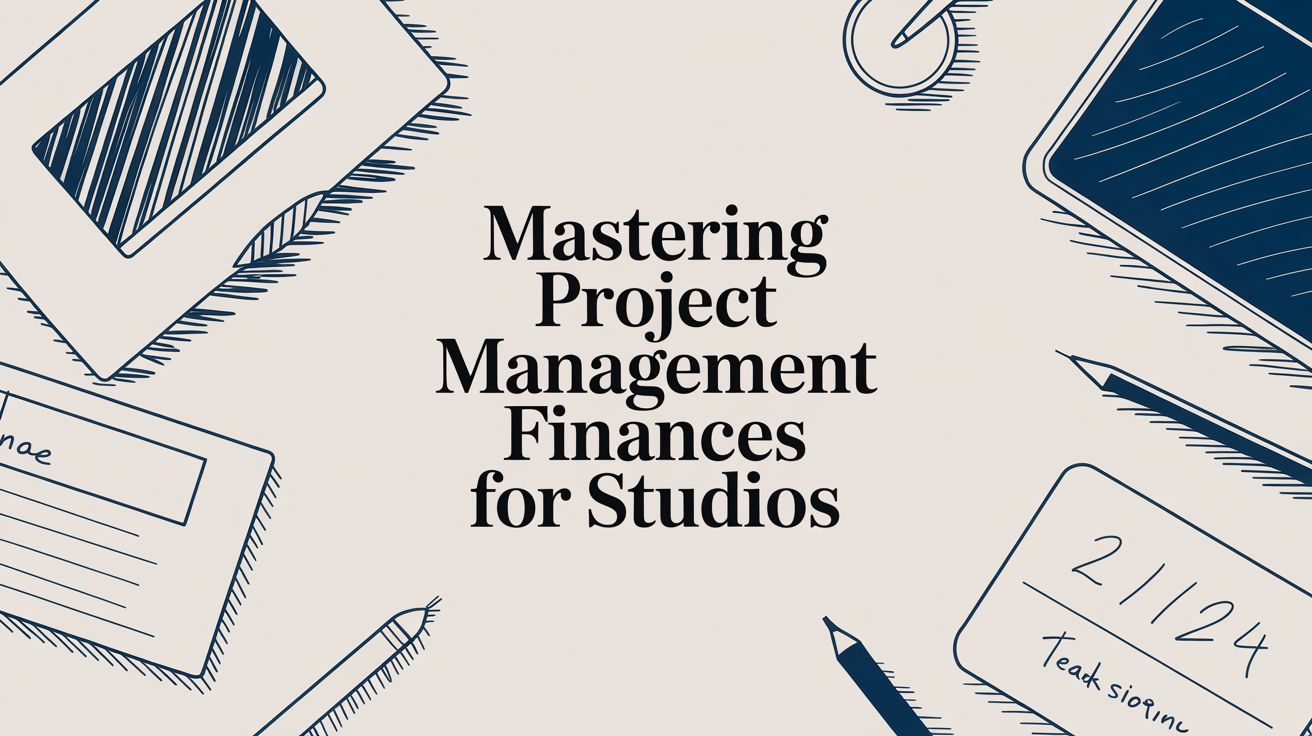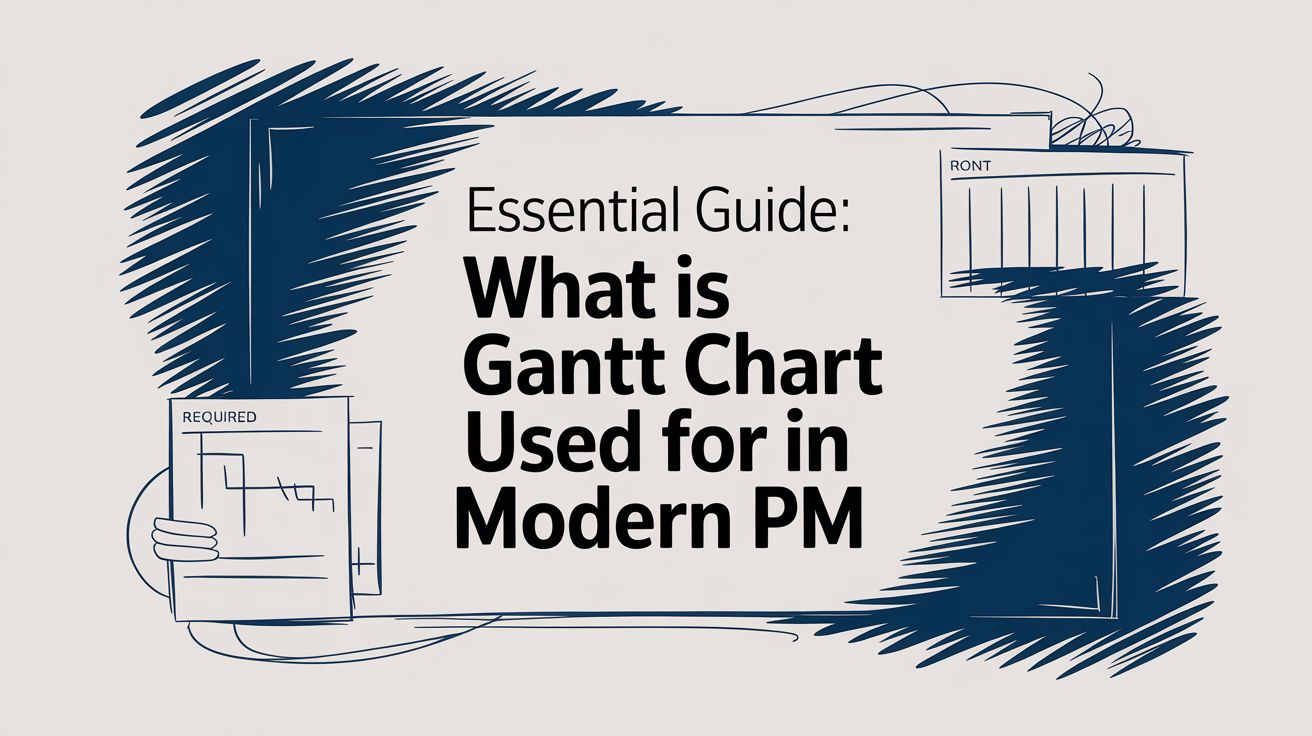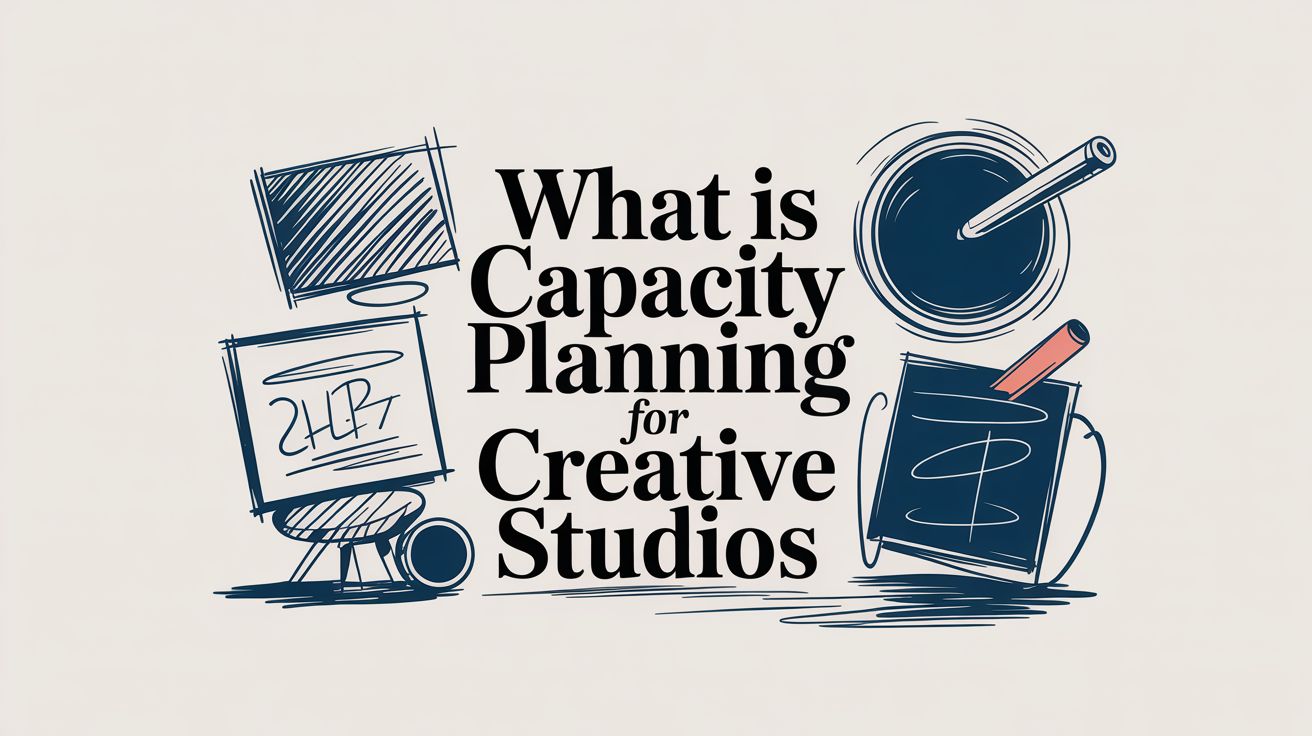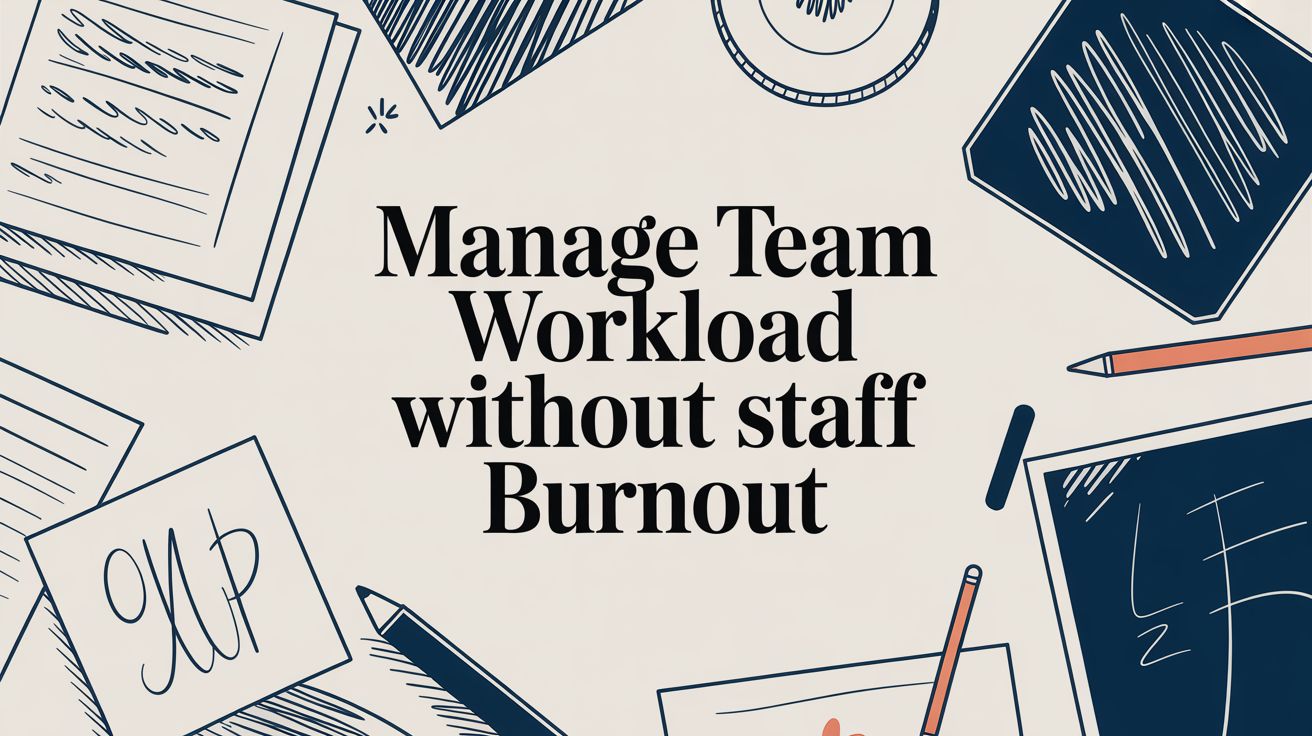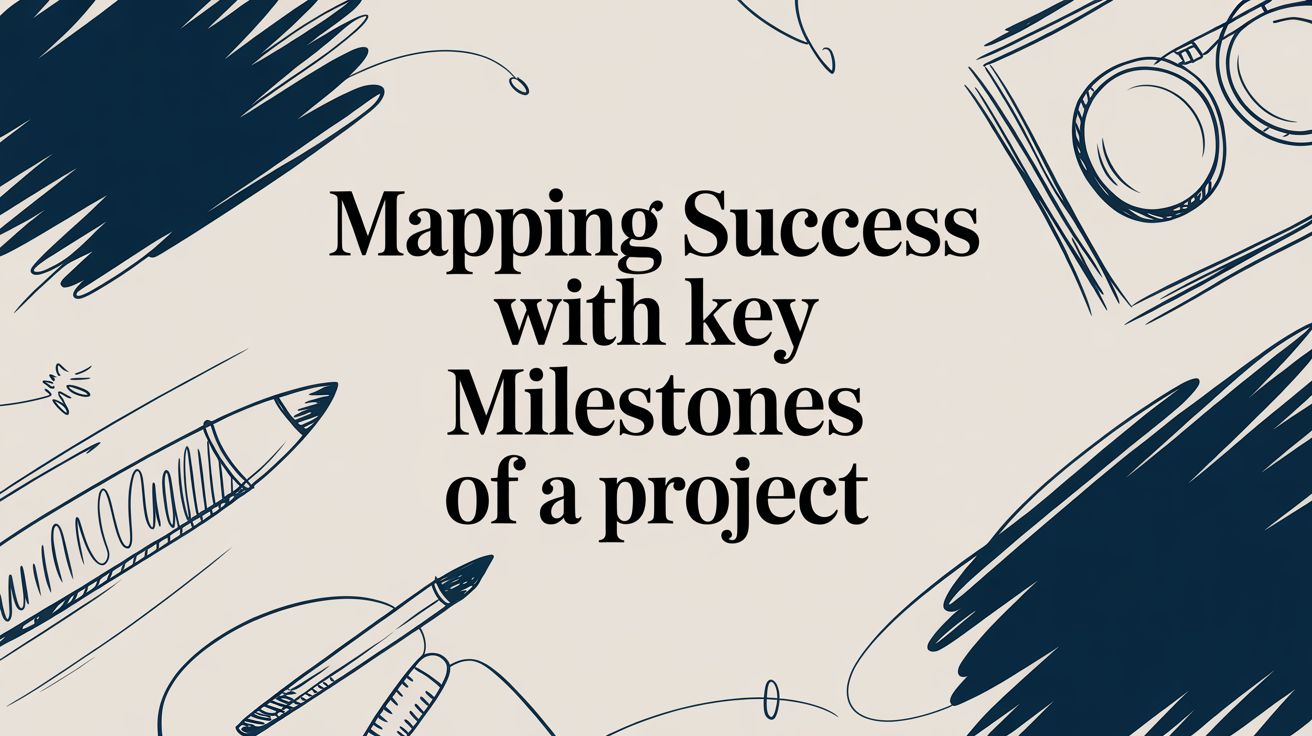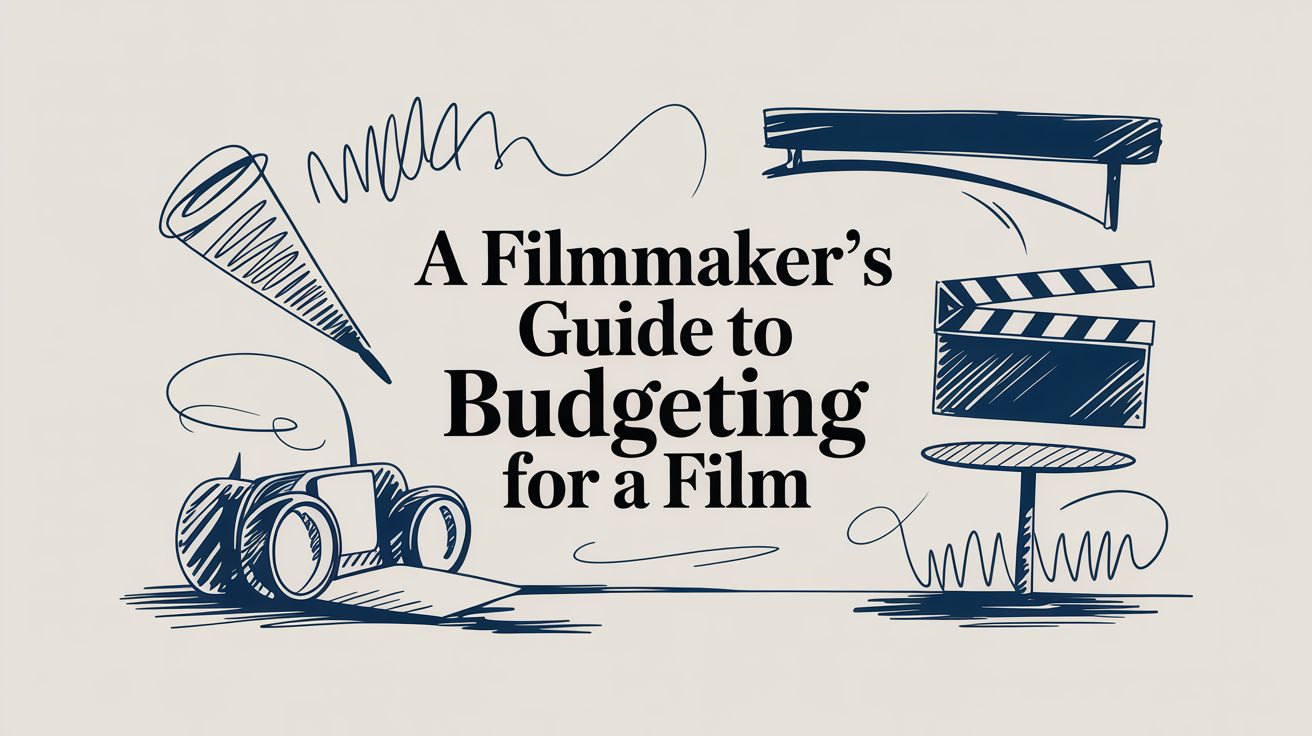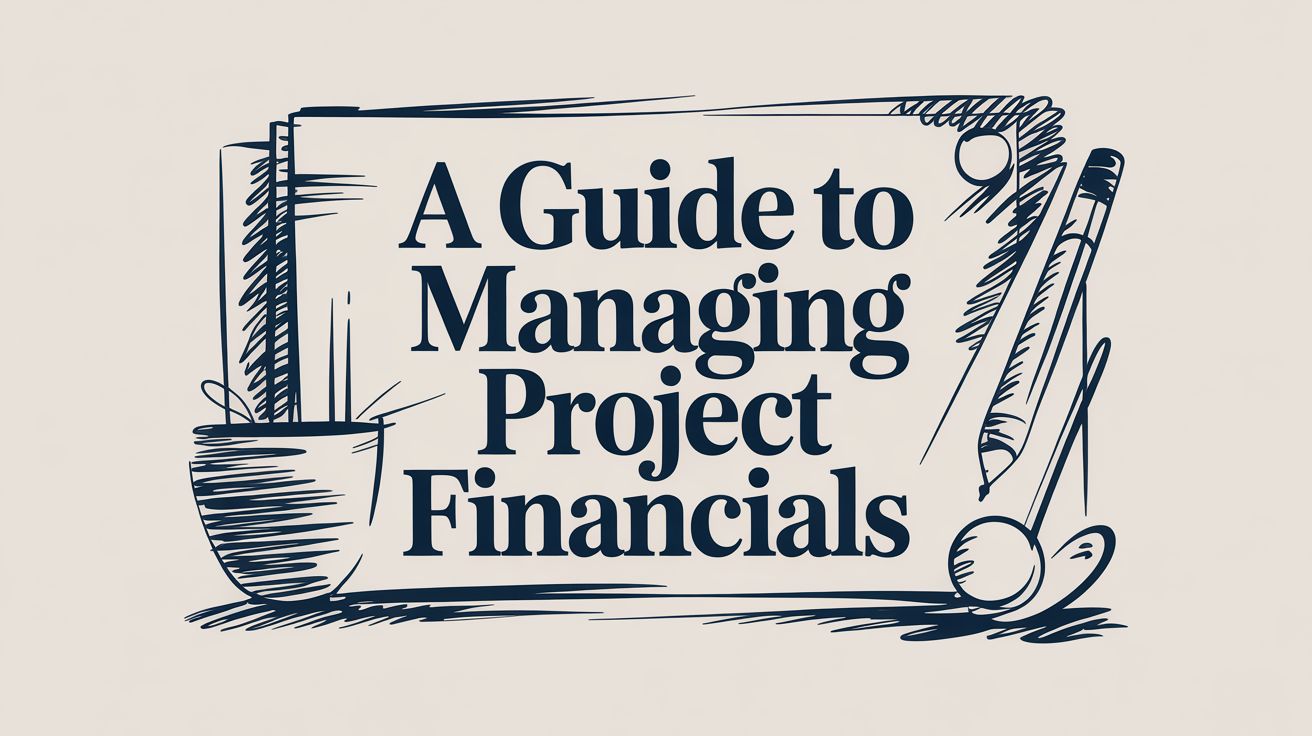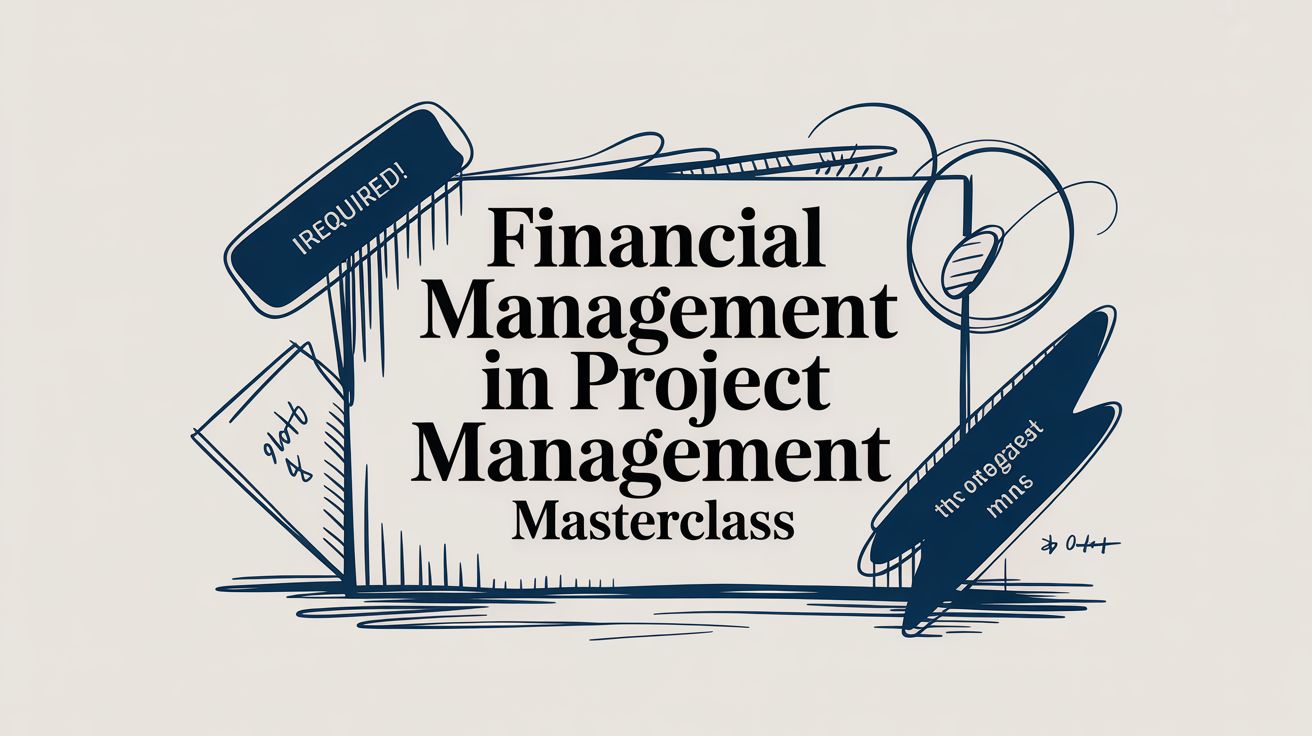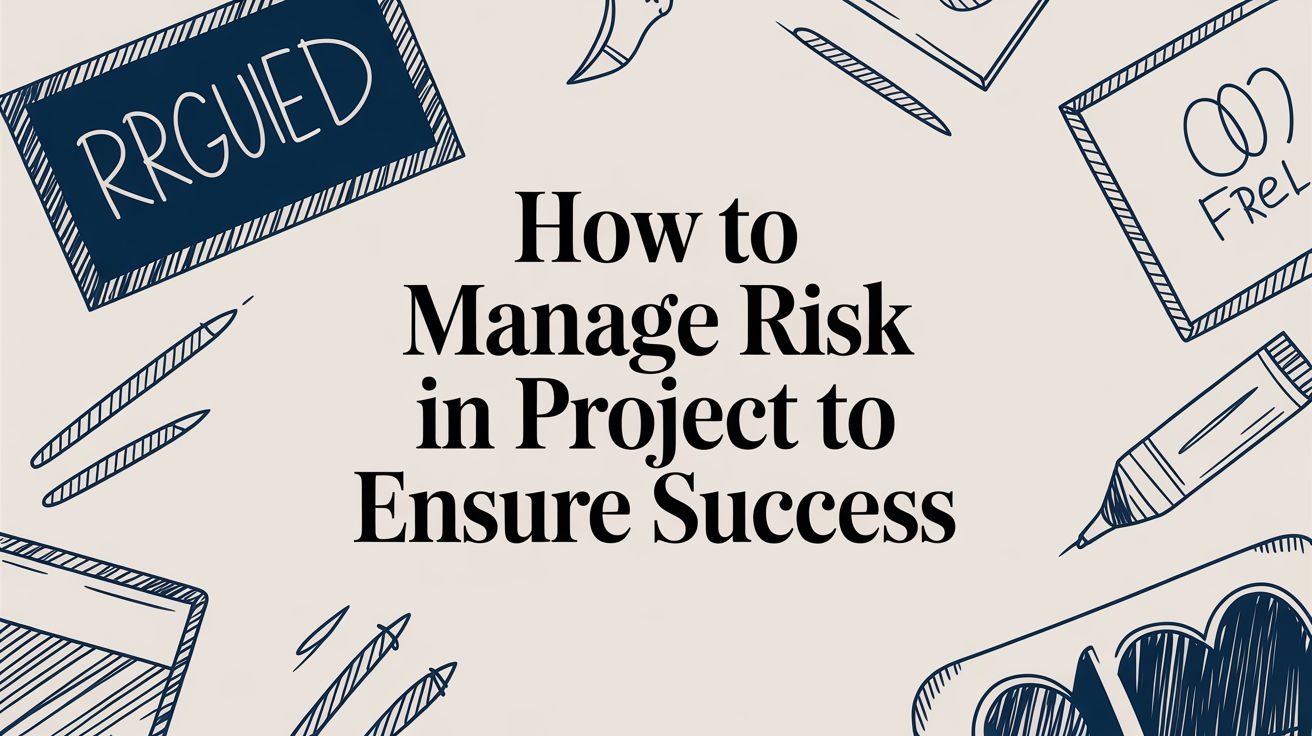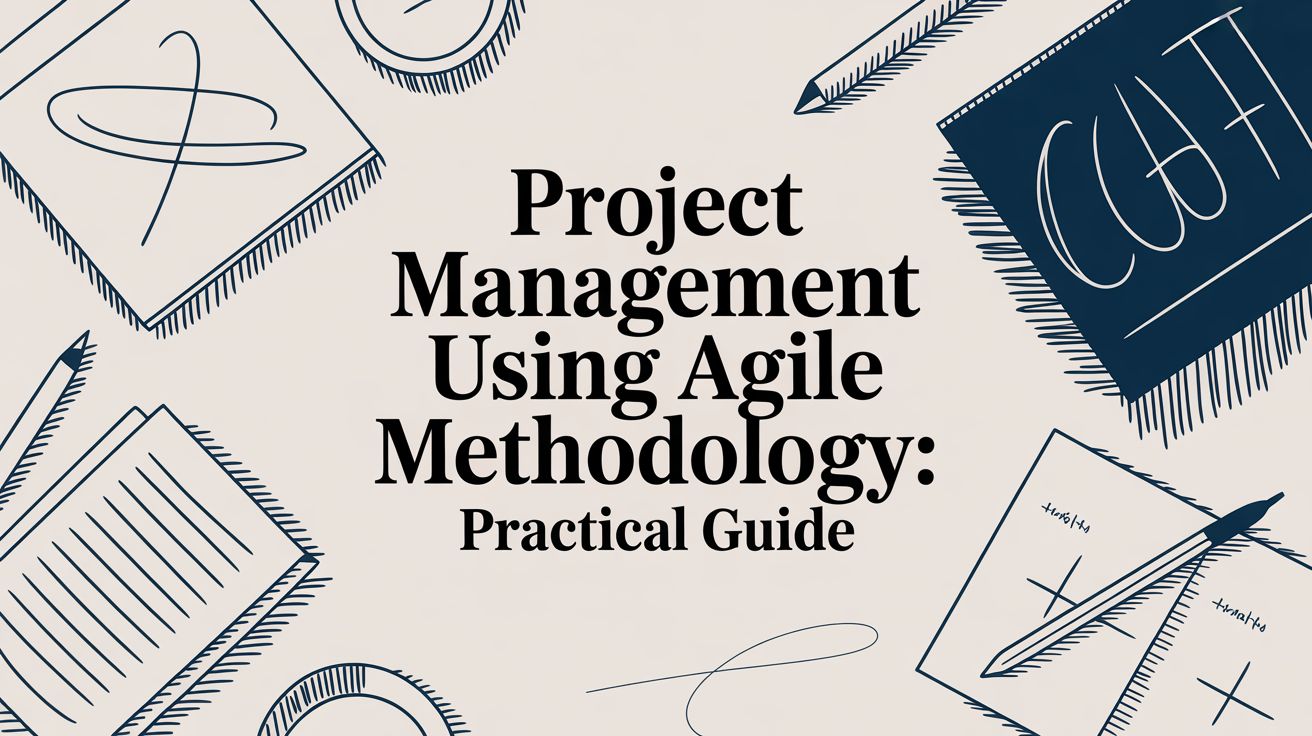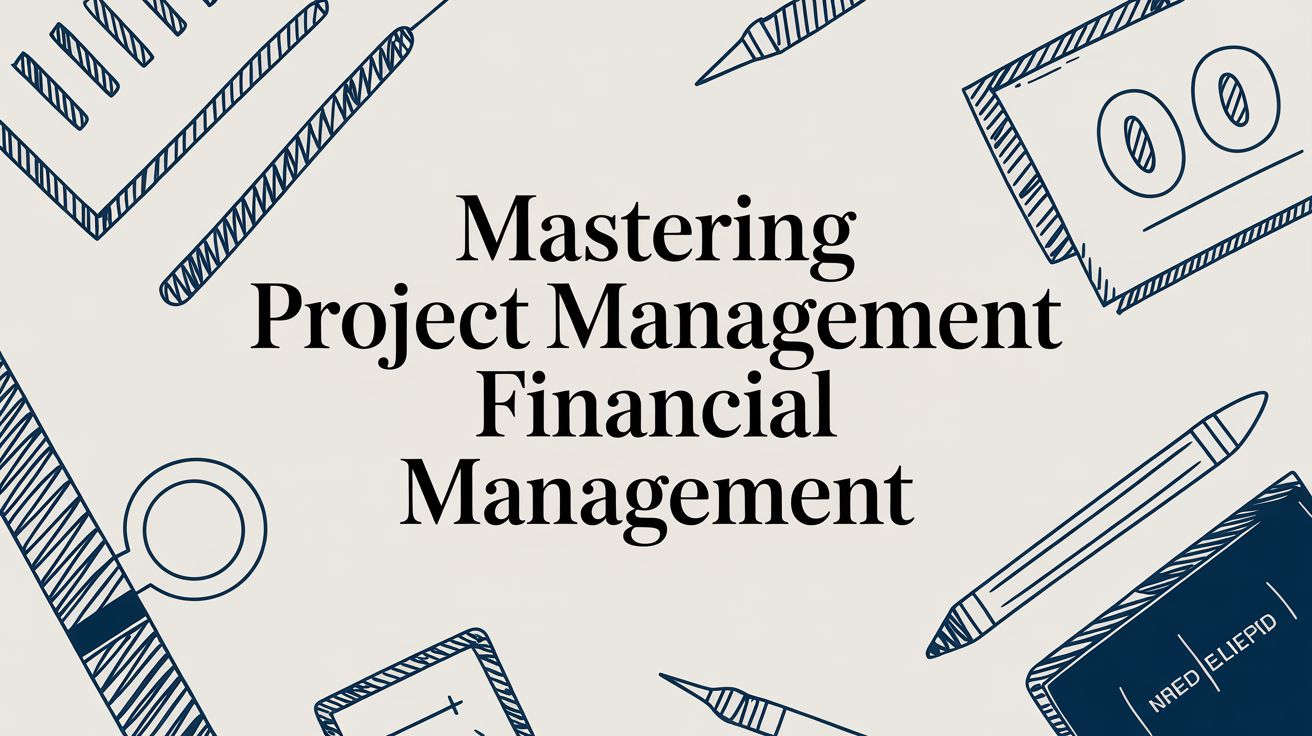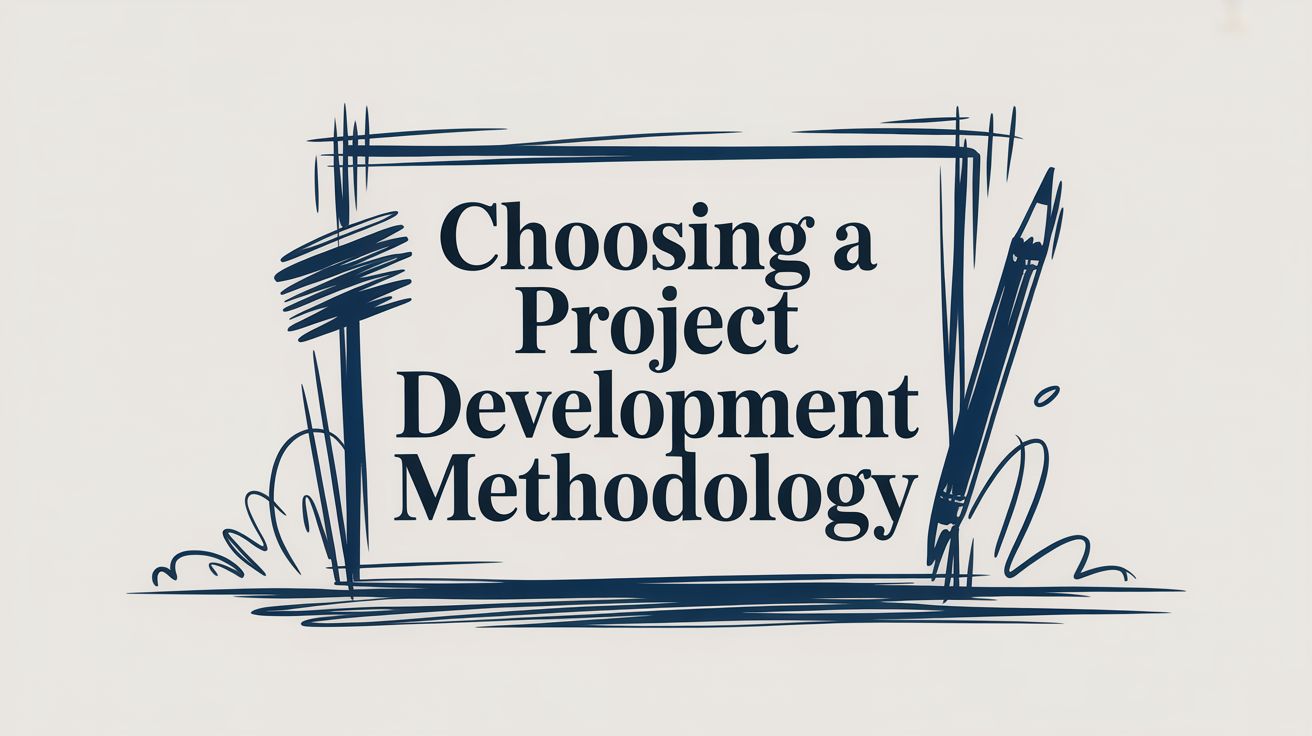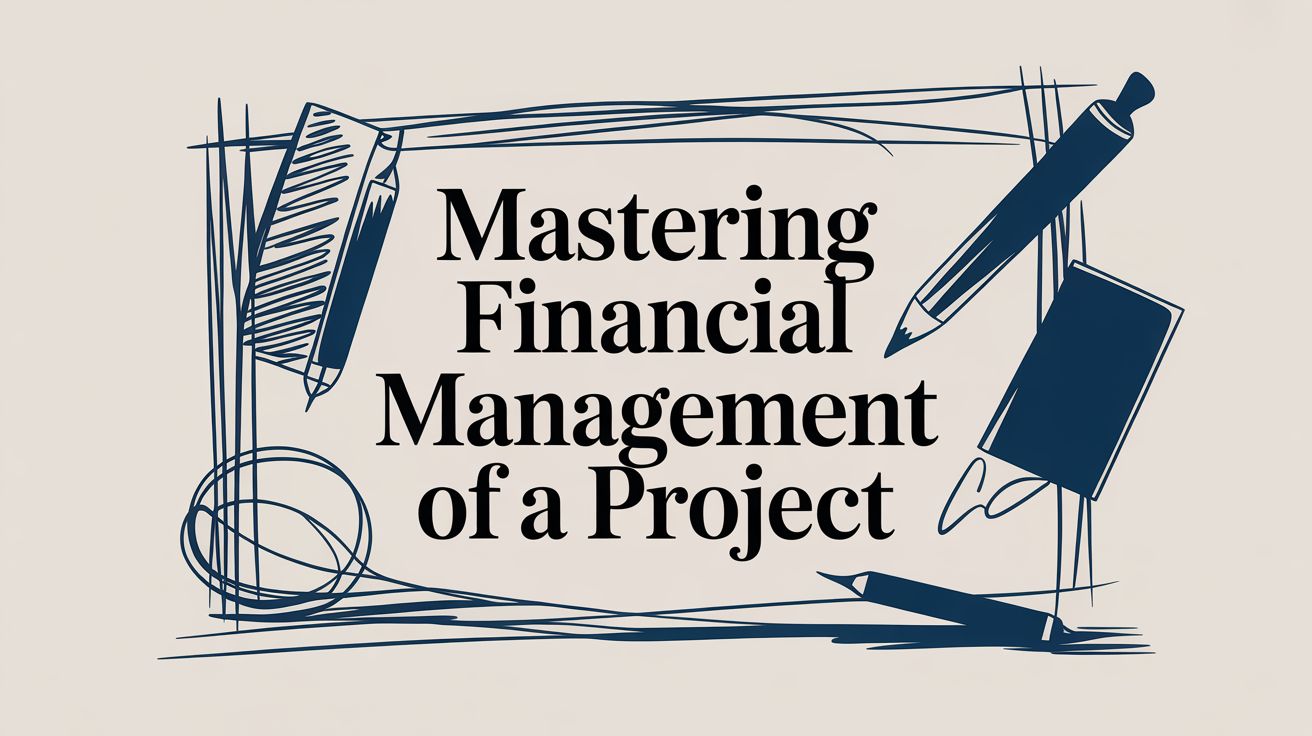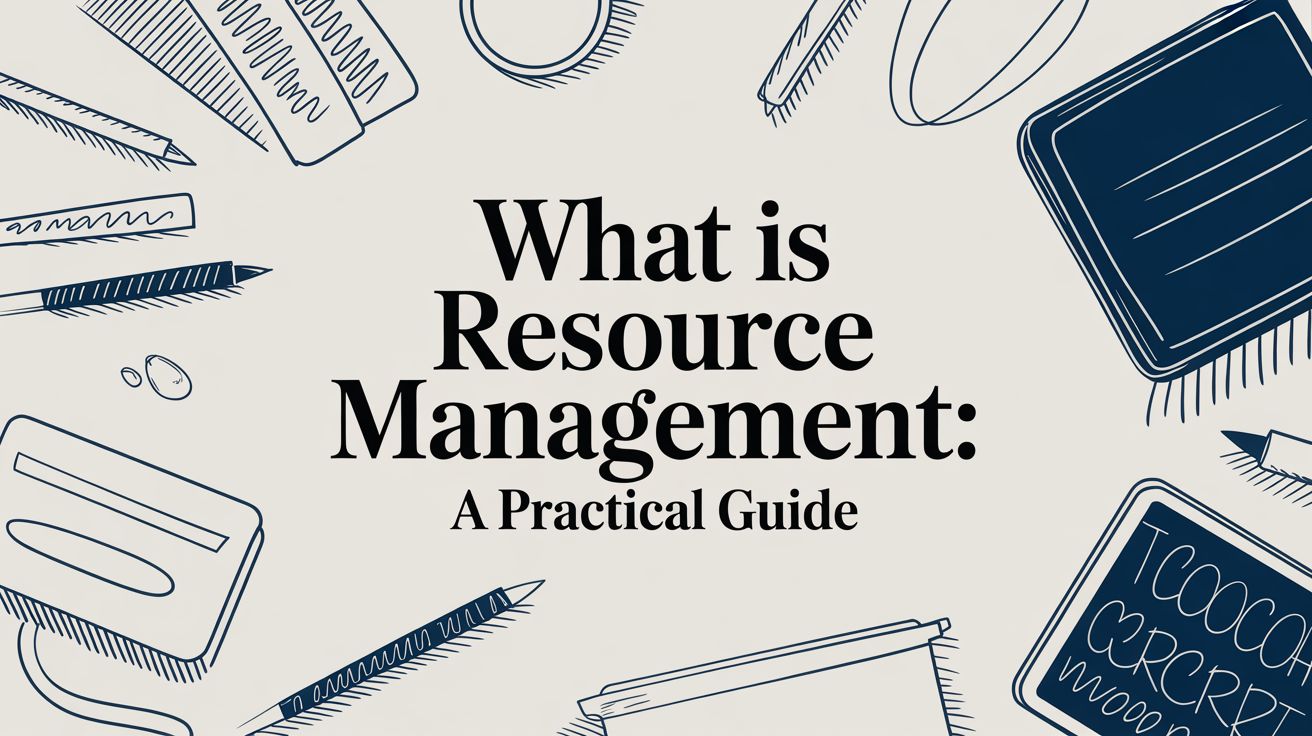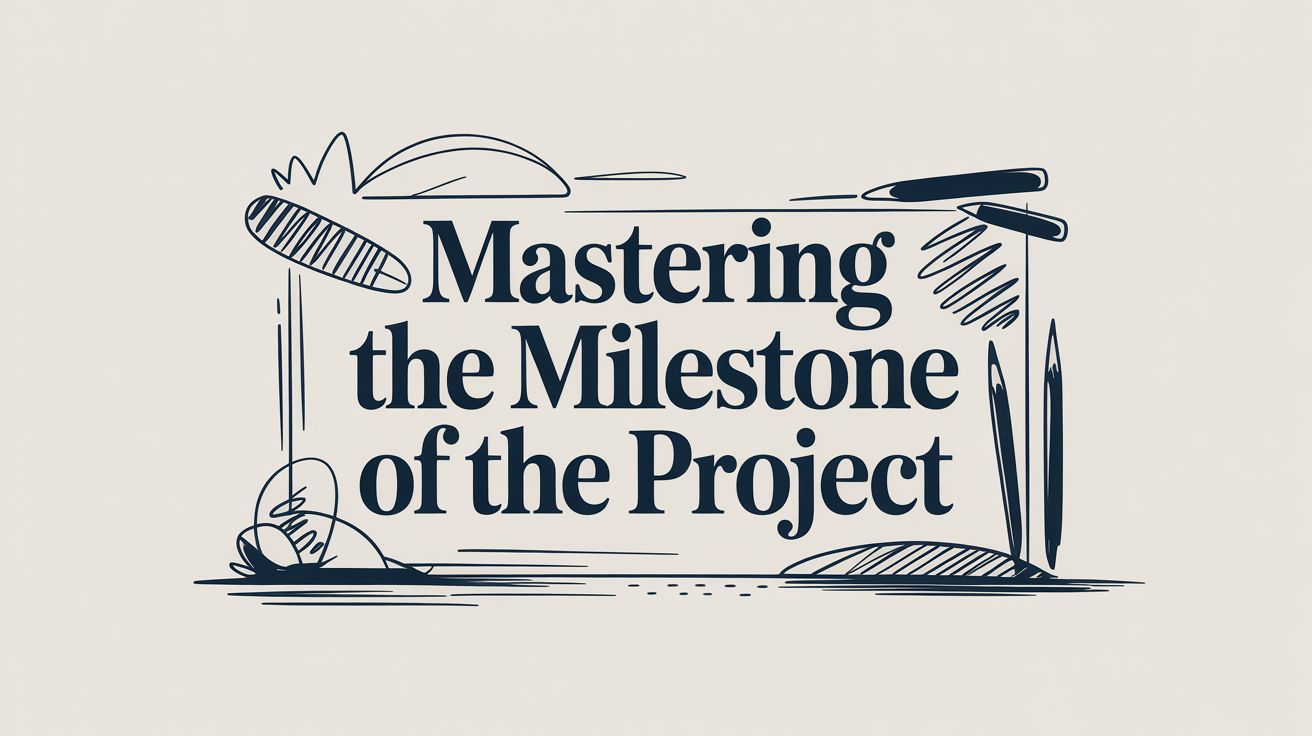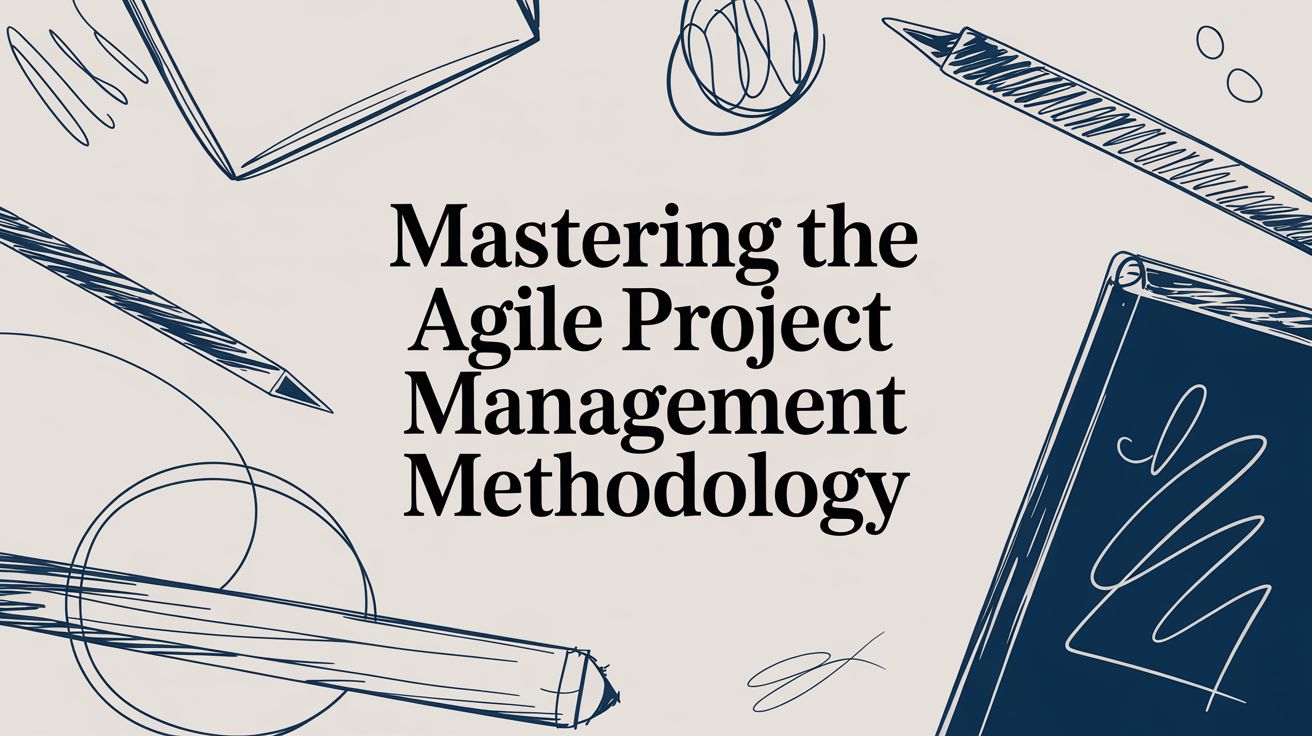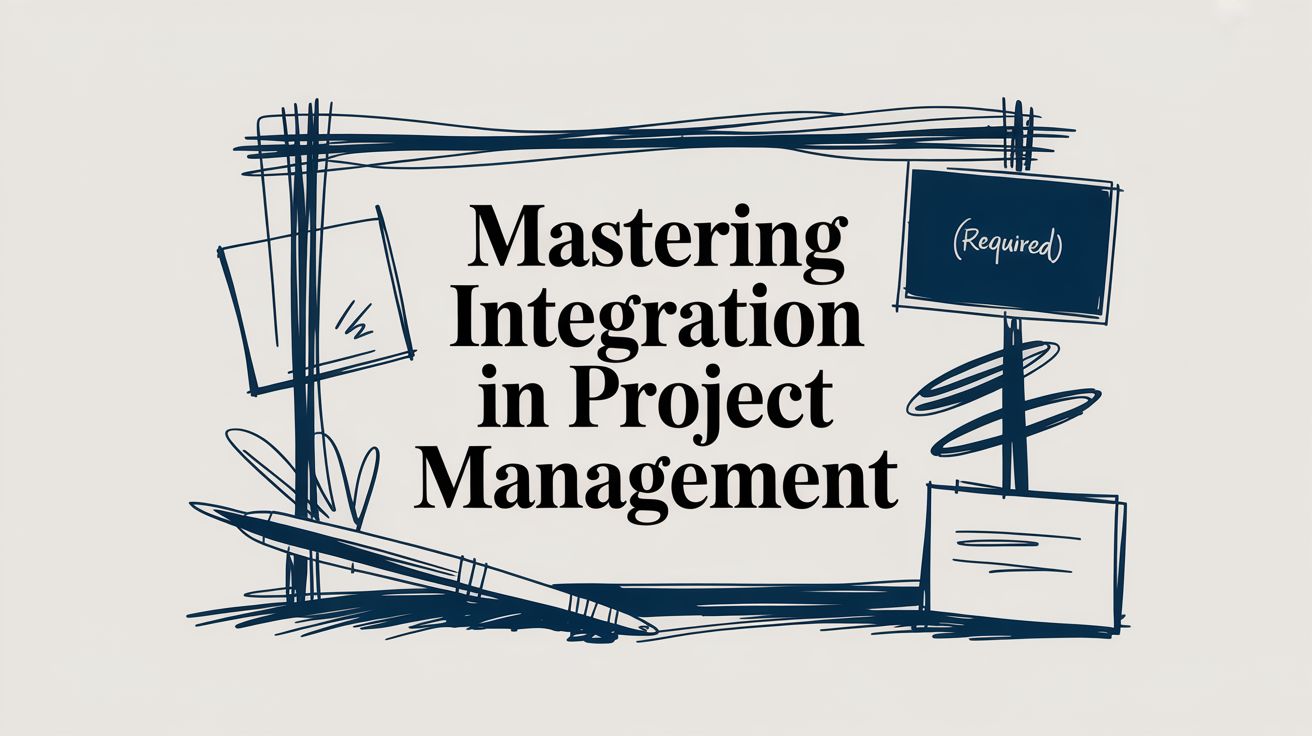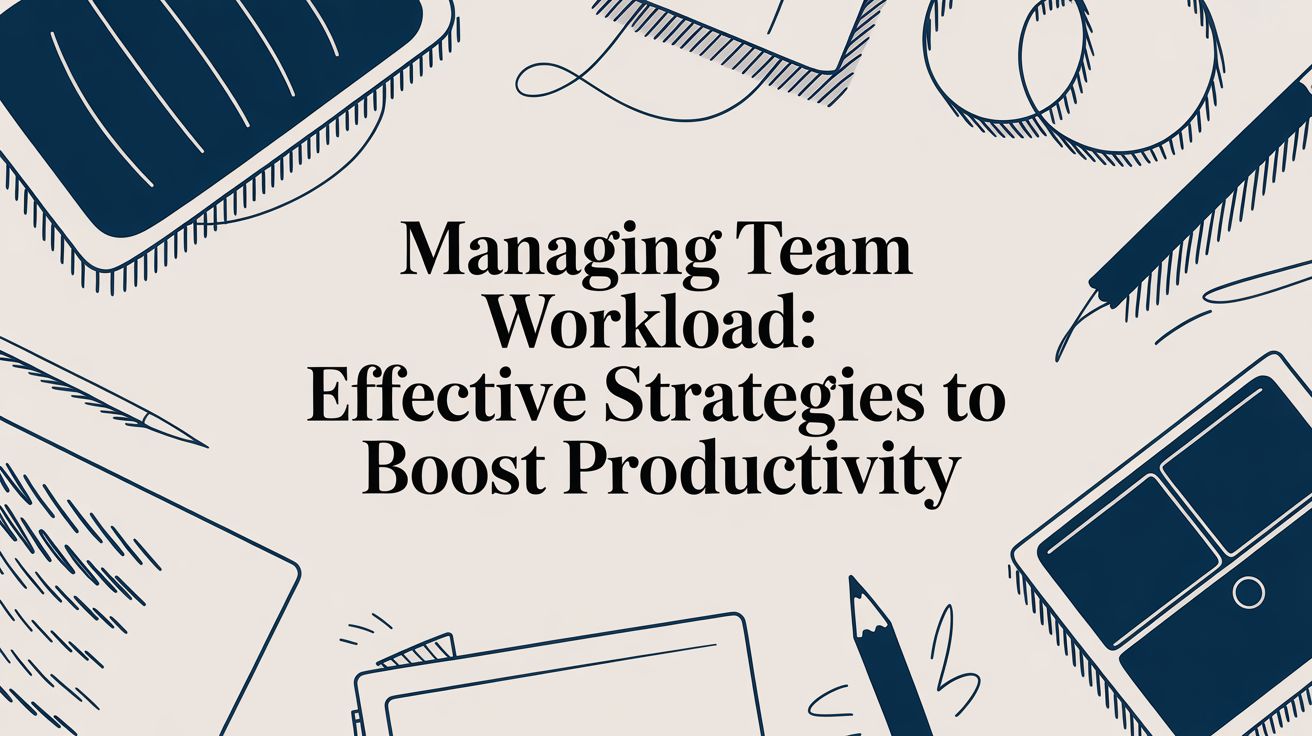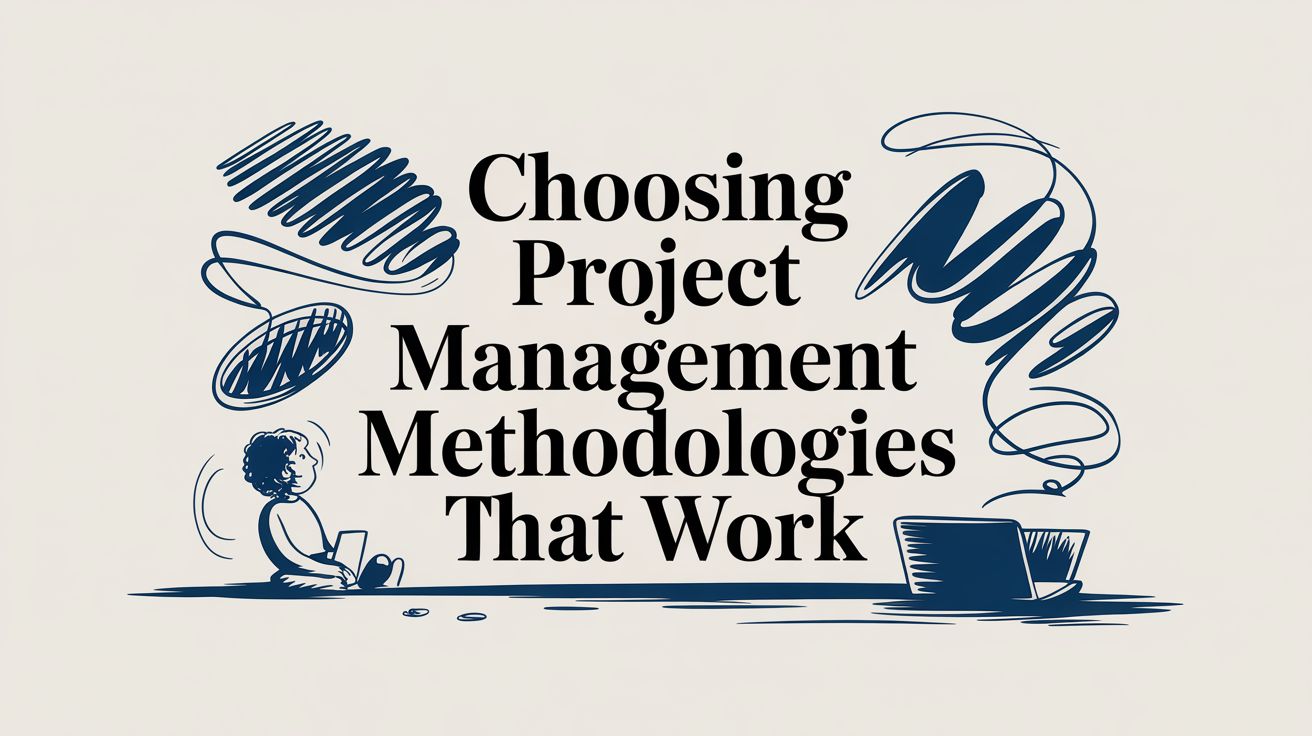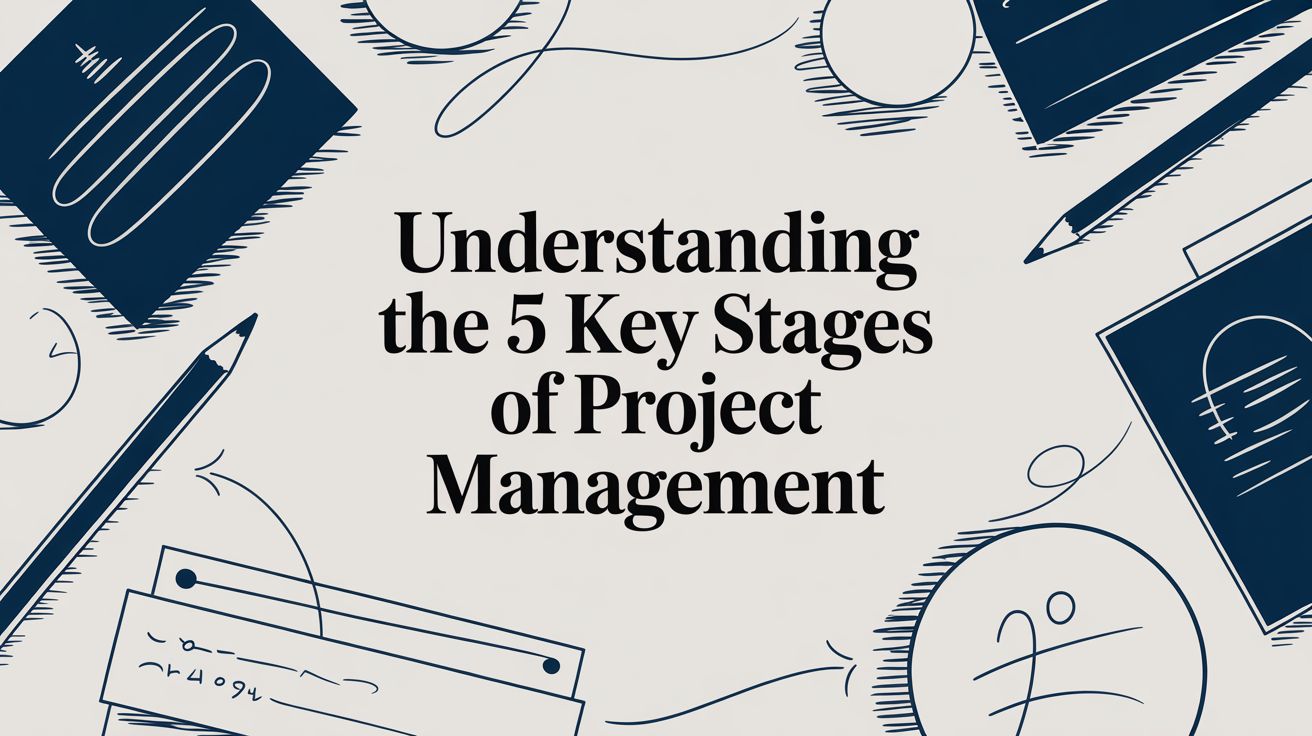At its heart, the advantage of project management is simple: it brings clarity, control, and predictability to what would otherwise be a chaotic process. Think of it as the architectural blueprint for a complex building. Without it, you’re just guessing, which often leads to wasted resources, blown budgets, and a final product that misses the mark. A structured approach gets everyone on the same page, keeps finances in check, and makes sure the final result is exactly what you planned for.
Why Structured Project Management Matters
Trying to run a project without a formal management structure is a bit like setting off on a sea voyage with no map, no compass, and no destination in mind. You might eventually hit land, but it almost certainly won't be where you intended to go, and the journey will be rough.
At its core, structured project management provides clear strategies to improve business efficiency and drive growth. It's the discipline that turns ambitious ideas into a series of achievable, step-by-step tasks, giving your team the stable framework it needs to succeed. This isn’t about just making to-do lists; it’s a strategic function that ensures the right work is done by the right people, at the right time.
This infographic neatly shows how the core pillars of a well-managed project—clarity, budget control, and successful delivery—all support one another.
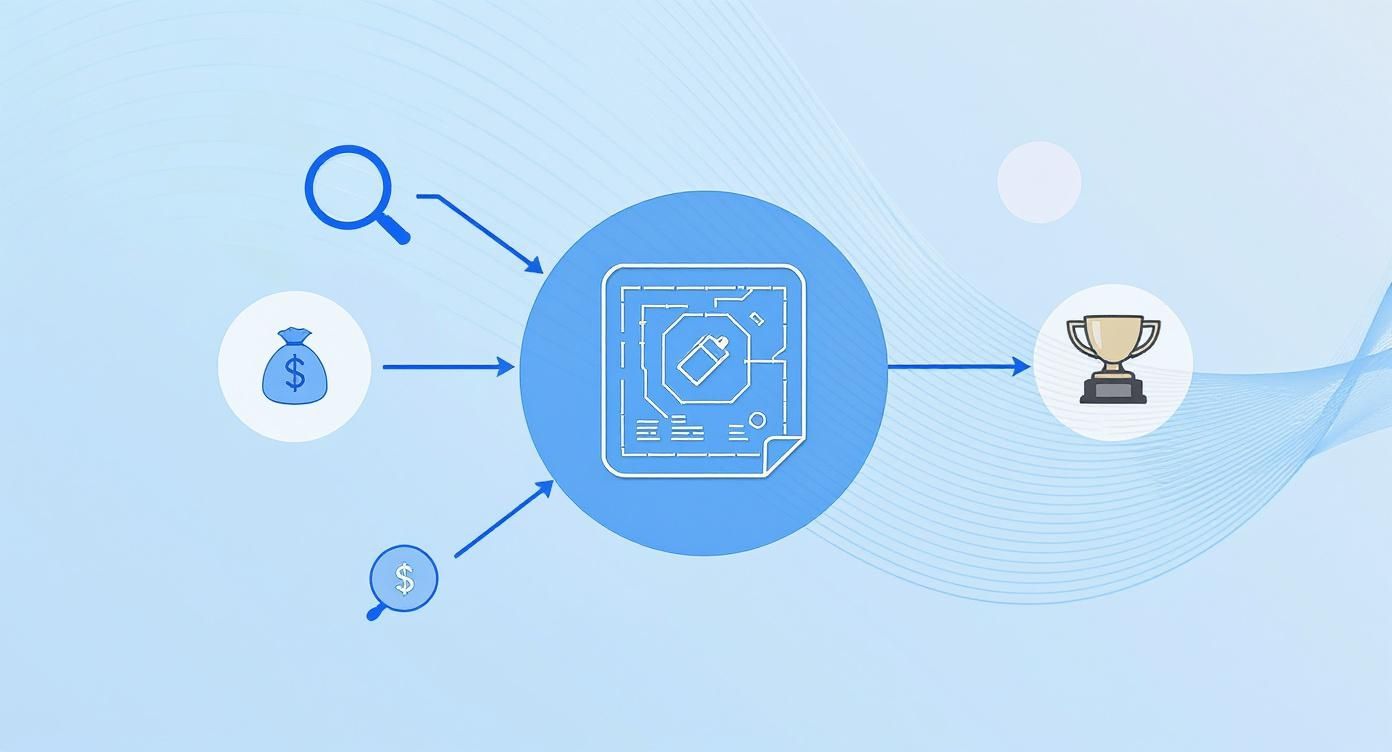
As you can see, a clear plan is the foundation for everything else, directly influencing your ability to manage costs and ultimately deliver the desired outcome.
A well-managed project provides the structure needed for stability and success. It moves teams from reactive problem-solving to proactive, strategic execution, which is fundamental for delivering value consistently.
Throughout this guide, we'll dig into the specific benefits a disciplined approach brings to any organisation. Getting to grips with each stage of project management is the key to unlocking these advantages and making success a predictable part of your process.
To give you a quick overview, here's a look at the main benefits project management brings to the table.
Core Advantages of Project Management at a Glance
| Advantage | Impact on Business |
|---|---|
| Improved Clarity & Focus | Everyone on the team understands the goals, their roles, and what's expected of them, reducing confusion. |
| Better Budget Management | With clear oversight of costs and resources, projects are far more likely to stay within their allocated budget. |
| Enhanced Efficiency | Workflows are optimised, duplication of effort is eliminated, and resources are used more effectively. |
| Increased Predictability | Projects are delivered on time and meet the required quality standards more consistently. |
These advantages work together, creating a more stable and productive environment where teams can do their best work without the constant stress of chaos and uncertainty.
Driving Clarity and Strategic Alignment
One of the biggest wins project management brings to the table is its ability to take a lofty, high-level vision and break it down into crystal-clear, actionable goals. Without that structure, it's easy for teams to drift into their own silos, all pulling in slightly different directions. You end up wasting precious time on work that doesn't quite line up with what everyone is actually trying to achieve. A solid project plan cuts through that ambiguity and acts as the single source of truth.
It makes sure every single person—from the editors and sound designers right through to the VFX artists—knows the project's scope, what their specific part is, and what a "win" looks like for everyone. This shared understanding is the bedrock of strategic alignment.
Think about the post-production workflow for a big feature film. The project manager's plan is the only thing stopping the colour grading team from starting work on scenes before the final visual effects have been dropped in and signed off. This simple act of coordination prevents eye-wateringly expensive rework and keeps the entire creative pipeline flowing smoothly towards a single, unified final product.
Defending Against Project Failure
Ambiguity is a project's worst enemy. When goals are vague, or worse, they shift without warning, projects bleed momentum and focus. This lack of clarity is one of the most common reasons projects fail, and it usually rears its ugly head as uncontrolled 'scope creep'.
The research on this is pretty consistent: undefined goals and creeping scope are massive risks. One recent study pointed out that a whopping 41% of project failures are down to scope creep or totally unrealistic deadlines. Unclear objectives were responsible for another 16%. You can dig deeper into the common causes of project failure on xergy.com.
A project plan isn't just a document; it's a communication tool. It translates broad strategic goals into a focused, shared language that everyone on the team can understand and execute against.
At the end of the day, this level of clarity does more than just keep a project from going off the rails. It builds a real sense of purpose and ownership within the team. When people can see exactly how their individual contributions fit into the bigger picture, their engagement and the quality of their work naturally go up. That kind of alignment is a game-changer.
Mastering Budgets and Optimising Resources

One of the biggest wins project management brings to the table is a solid grip on your finances and resources. It gives you a clear framework for budgeting, tracking where the money is going, and allocating everything intelligently. This simple shift moves your financial oversight from being reactive—scrambling when things go wrong—to proactive. Without this discipline, it’s all too easy for budgets to spiral and for expensive kit or talent to be used inefficiently.
This control isn't just about good housekeeping; it's fundamental to protecting your bottom line. Project managers keep a close eye on spending as it happens, letting them catch potential overruns early and make smart adjustments before a small issue becomes a full-blown crisis. It’s all about making sure every pound spent and every hour worked is delivering the most bang for your buck. Getting your head around the basics of the financial management of a project is the first, crucial step.
Smart Resource Optimisation in Practice
Picture a post-production scheduler trying to piece together a complex film edit. They're juggling seriously expensive resources: editing suites, colour grading bays, and sought-after sound designers. A sharp project manager makes sure all these assets are booked and used seamlessly, one after the other, eliminating those painful, costly gaps where a high-end suite sits empty.
That’s resource optimisation in a nutshell. It’s more than just tracking pounds and pence; it’s about squeezing every last drop of value from your most important assets, whether that’s people, tech, or time. The whole point is to build a workflow where everything and everyone is in the right place at exactly the right time.
A project budget isn't just a spending limit; it's a strategic plan for how resources will be converted into value. Effective project management is the execution of that plan.
The numbers back this up. Mature organisations are a whopping 77% more likely to hit their goals than their less-organised counterparts. But there are still major hurdles in the UK, where 54% of organisations can't track key performance indicators (KPIs) in real-time. This leads to nearly 10% of every pound spent being wasted simply due to poor project performance. By bringing in robust project management, you can tackle that waste head-on, ensuring every single investment truly counts towards the final product.
Building Stronger Team Collaboration

Let’s be honest, strong communication is the engine that actually drives a project forward. Without it, even a team of all-stars can start to feel disconnected, which inevitably leads to crossed wires, frustrating delays, and people accidentally re-doing work.
This is where project management really shines. One of its biggest advantages is creating clear, reliable ways for everyone to talk. It's about turning a scattered group of talented individuals into a team that's genuinely in sync.
Frameworks like Agile or Scrum aren't just about ticking boxes; they're fundamentally about creating a rhythm for dialogue. They build in regular touchpoints—think daily stand-ups or weekly reviews—that keep information flowing predictably. This simple structure stops crucial details from getting buried in an avalanche of emails or lost in a passing corridor chat.
Project management takes communication from something that's often random and chaotic and turns it into a deliberate, structured process. This ensures everyone has the right information when they need it, building a culture of transparency where everyone feels part of the same mission.
Creating a Unified Workflow
Picture a team of editors, VFX artists, and sound designers all working on the final cut of a film. The post-production supervisor, acting like a project manager, becomes the central hub for every conversation.
Instead of each department working in its own silo, a shared platform means every colour grade note, sound mix update, and VFX render is visible to the entire team. A last-minute change from the director is logged once and seen by all, not passed down a chain of whispers.
This joined-up way of working brings some massive wins:
- A Single Source of Truth: All project files, feedback, and schedules live in one place. No more hunting for the 'final_final_v3' version of a file.
- Clarity on Who Does What: Everyone knows exactly what they're responsible for. This cuts out the confusion and stops important tasks from being forgotten.
- A Happier Crew: When people feel informed and their contributions are seen, morale and engagement just naturally go up. The result? A better final product.
Ultimately, this kind of organised teamwork is essential for collaboration for innovation. It lays down the solid foundation needed for creative ideas to really take flight, ensuring every member of the team is aligned, empowered, and pulling in the same direction.
Mitigating Risks Before They Become Problems

The whole process starts by spotting potential threats right from the get-go. These could be anything—technical glitches, budget shortfalls, or operational snags. This simple shift moves your team from a "hope for the best" mindset to one that's genuinely prepared for the worst. That change alone is a game-changer.
Preparing For The Unexpected
Picture this: you're managing a major live broadcast. A seasoned project manager isn't just planning for a sunny day with perfect signal. They’re building out contingency plans for everything that could realistically go wrong.
- Equipment Failure: A backup generator is on-site and tested. Redundant cameras are ready to go at a moment's notice.
- Weather Disruption: An alternative indoor venue is on standby, or at the very least, weatherproofing measures are already budgeted for.
- Key Staff Illness: There's a clear on-call list of people with the right skills, ready to step in.
This kind of forward-thinking is what separates a smooth broadcast from a chaotic disaster. For companies wanting to formalise this process, it's worth taking the time to explore top risk management software platforms.
This structured approach is also crucial for managing changes. When a client suddenly requests a major re-edit late in the game, a good process prevents panic.
Instead of reactive pivots that blow the budget, project management provides a controlled process. Proposed changes are carefully evaluated for their impact on cost and timelines, then formally approved before any work begins.
This framework turns what could be a frantic scramble into a deliberate, strategic decision. It keeps the project on track, on time, and on budget, ensuring the final result is exactly what everyone signed up for.
Why Project Managers Are Worth Their Weight in Gold
It’s easy to get lost in talk about processes and plans, but the real game-changer in project management is the person leading the charge. As projects get more complex, especially in media, smart companies are realising that a skilled project manager isn't just another overhead cost. They're a direct investment in success and profitability.
Think of them as the strategic hub of the whole operation. They’re the ones translating a director's vision or a client's brief into concrete, actionable tasks. All while navigating risks, keeping creatives aligned, and ensuring the budget doesn't spiral out of control. Their expertise is what makes sure resources are used wisely and the final product actually delivers what it promised. It’s no surprise this has become such a sought-after and well-paid career.
A Profession in High Demand
The demand for talented project managers is clearly showing up in their pay packets. A recent survey showed that in 2025, the average salary for UK project professionals jumped by a hefty 10%, hitting £52,500. You can dig into the details in the APM Salary and Market Trends Survey.
Investing in project management talent is a strategic business decision with a powerful and measurable return. A great project manager doesn’t just manage tasks; they safeguard the entire project's value from start to finish.
For production houses and agencies, hiring a skilled project leader means fewer costly mistakes and a much smoother, more predictable path to the finish line. And for individuals, it represents a solid career with tangible rewards, proving just how vital the human element is in getting great projects delivered.
Still Have Questions About Project Management?
Jumping into project management can feel like a big step, and it's natural to have a few questions. Let's tackle some of the most common ones to help you bridge the gap between knowing the theory and actually putting it to work.
What’s the Biggest Win for a Small Business?
For a small business, the single biggest advantage is focus. It’s easy to get pulled in a million different directions when you’re running lean.
Project management gives you a framework to set clear, achievable goals and make sure your limited resources—your time, your money, your team’s energy—are all pointing in the same direction. It stops you from wasting precious cash on vague ideas and ensures everyone is on the same page, which is absolutely vital when you’re trying to grow.
Do I Really Need Expensive Software to Get These Benefits?
Not at all. While specialised software is a fantastic tool once you’re ready for it, the real magic is in the principles, not the platform.
Things like clear objectives, well-defined tasks, and consistent communication can be managed just fine with simple tools like spreadsheets or even shared documents. The discipline you adopt is always more important than the specific tool you use, especially when you’re just getting your sea legs.
The real power of project management lies in the discipline it creates, not the software it uses. A clear plan on a whiteboard is more valuable than a complex tool that no one understands or uses correctly.
How Does This Actually Improve Client Satisfaction?
It all comes down to trust. Project management helps you build that trust by making your process transparent and reliable.
When you can give clients regular, meaningful updates, communicate clearly about timelines, and proactively manage their expectations, they feel secure. They know what's happening, they know you're in control, and they have confidence you'll deliver. That kind of organised, predictable approach is the foundation for a much stronger and more positive client relationship.
Ready to bring clarity and control to your post-production workflows? See how freispace can help you master your projects, budgets, and resources by visiting https://freispace.com today.

